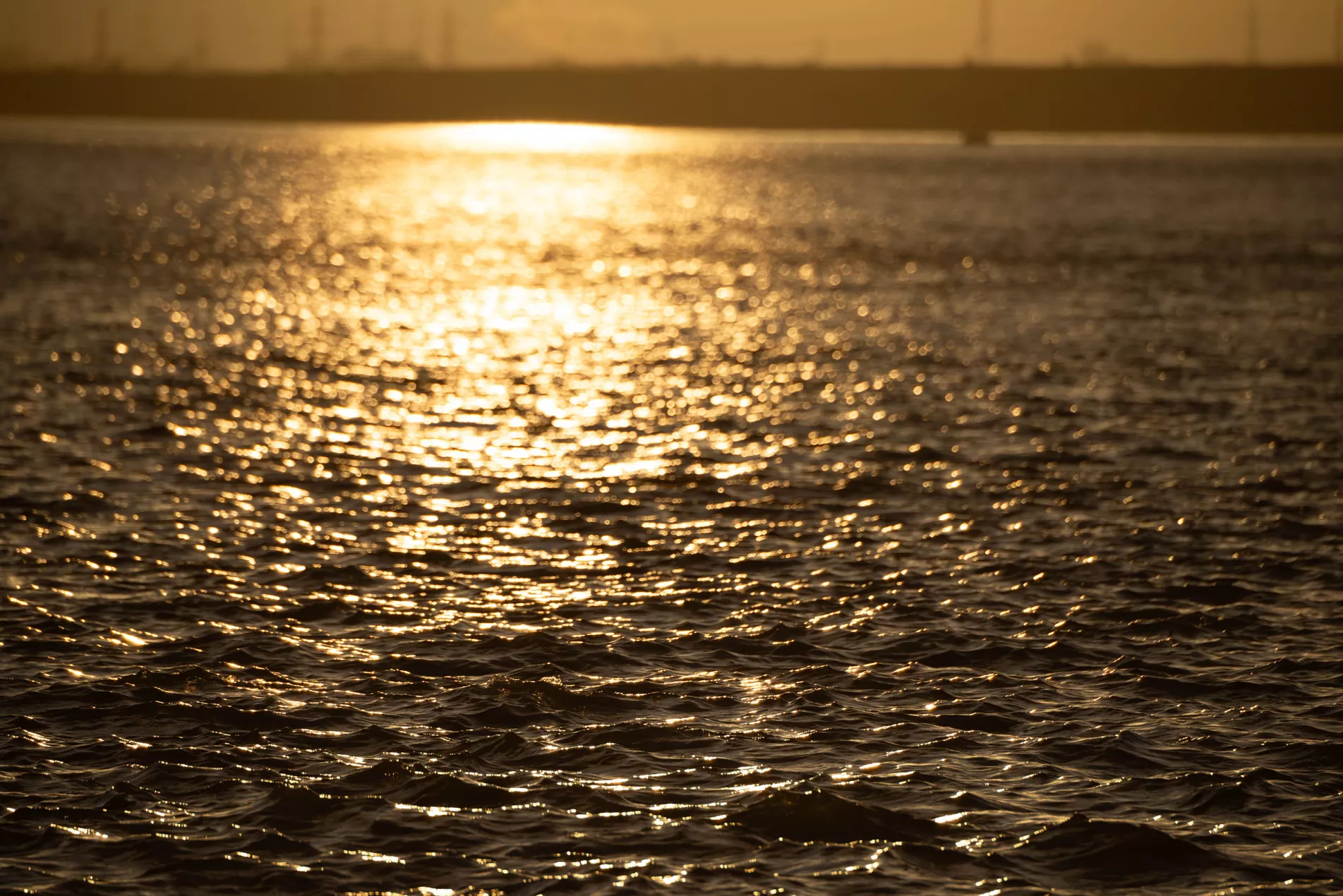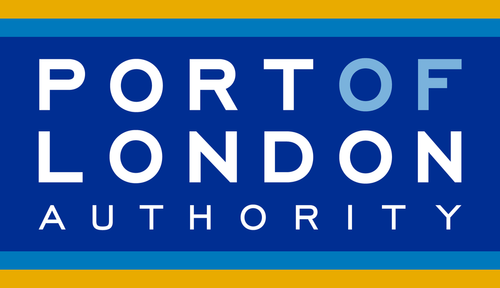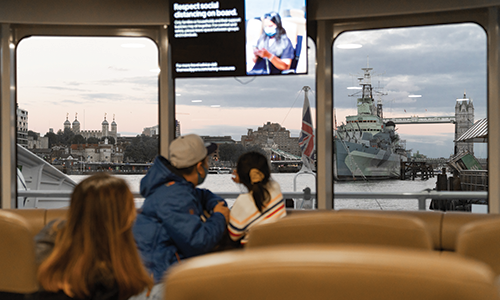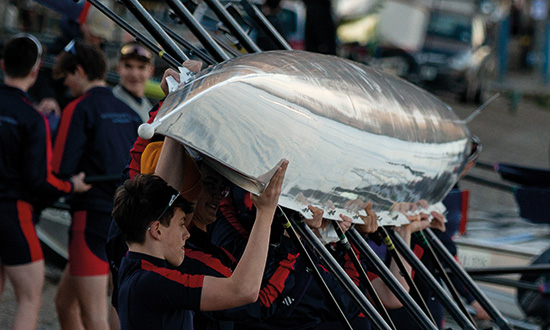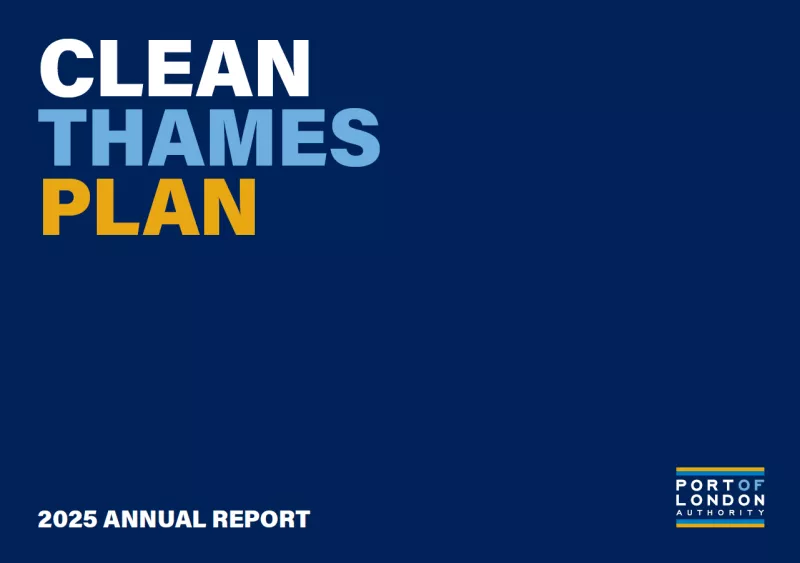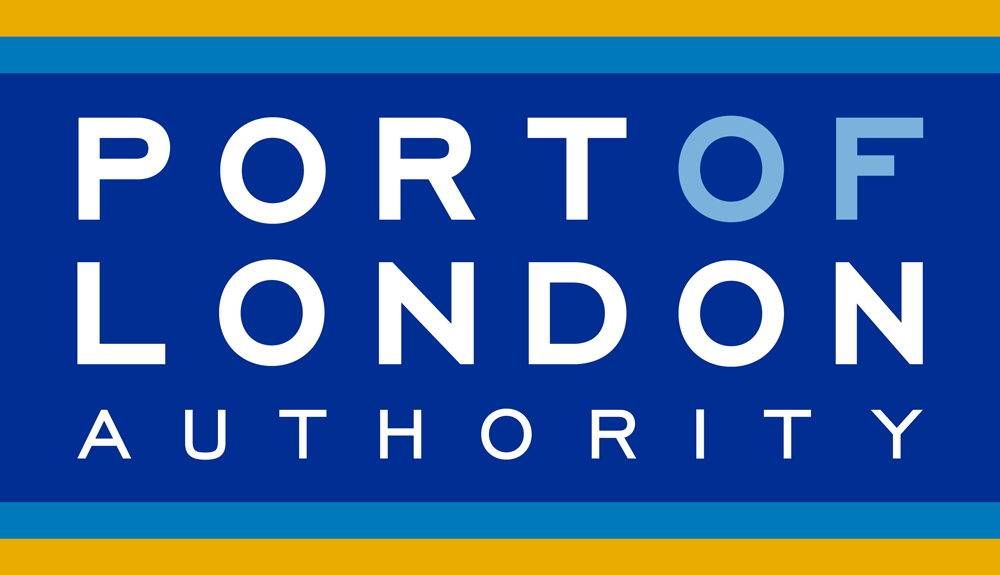Live Tides
NOTICES TO MARINERS
Charts & Surveys
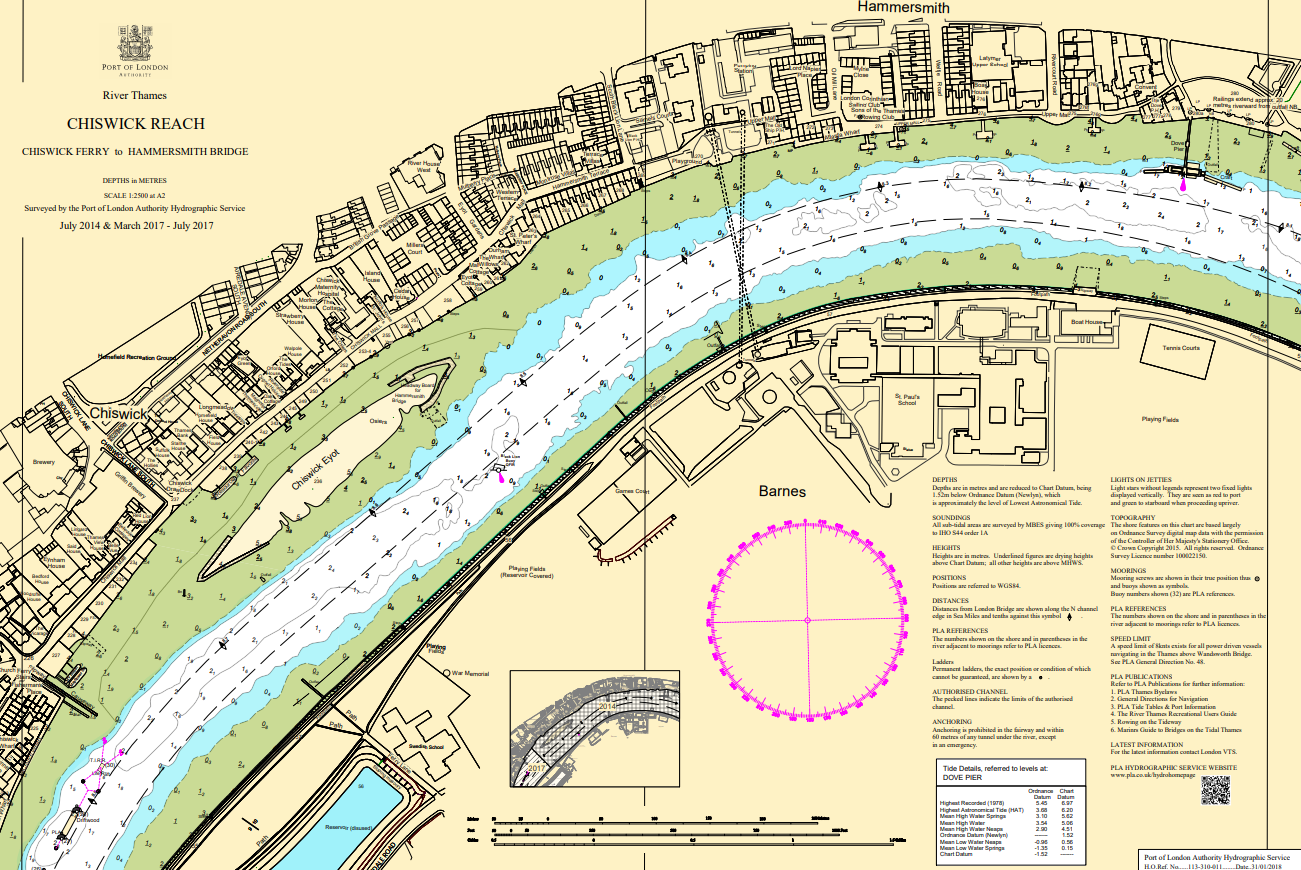
Incident reporting
Life-threatening emergencies on the river:
Call 999 and ask for the Coastguard
For near miss, safety observations and incident reporting click below
Thames Lens 2023: Capture Your Thames Vision
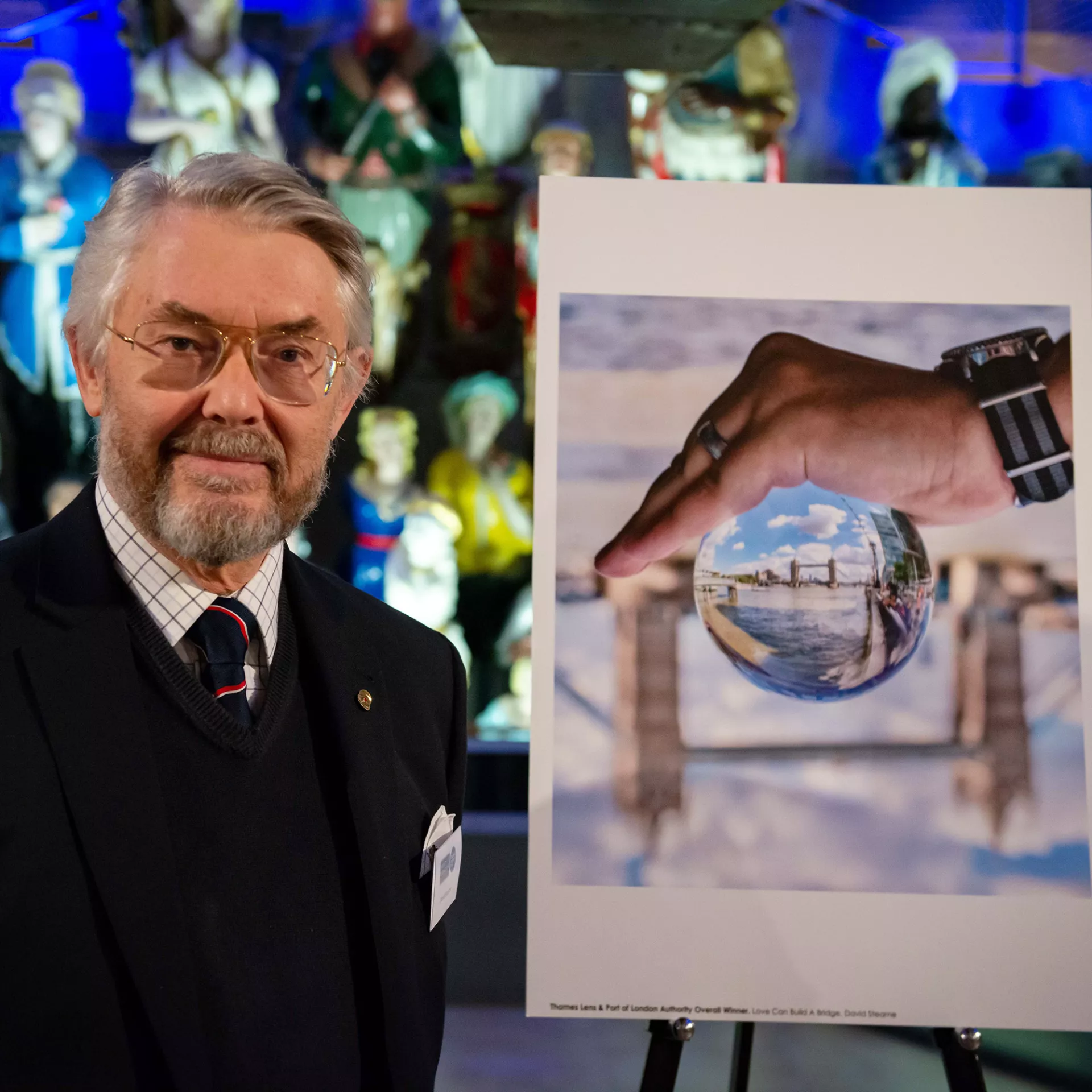
For 17 years Thames Lens has encouraged non-professional photographers to get out and explore the River Thames through a creative lens. We have four distinct categories, each of which speak to different facets of the river that all offer different potential.
Prizes include River Roamer tickets each courtesy of Uber Boat by Thames Clippers, spots on walks with London Streets Photography, and much more.
Deadline: Friday 12 January 2024
The winners will be chosen by a panel comprised of representatives from Thames Festival Trust, Port of London Authority, and Artist and Curator, Kate Coe.
“This is a great competition. It can be something you tackle soon, as the hot summer runs through, or you can pause and come to the Thames’ banks in cooler times when autumnal colours abound. Whenever you choose to come, show us the Thames through your eyes, through your lens. This year, we are keen to see how the Trading Thames can be captured and reflected too, so get busy, look for the story of the UK’s largest port and busiest inland waterway and share it!” -- Alistair Gale Director of Corporate Affairs, Strategy & Thames Vision
- Categories
Architecture: The Thames is lined by and covered with iconic architectural buildings including Brutalist Royal Festival Hall, Tower Bridge’s Gothic Revival and Isambard Brunel’s Tunnel Shaft. This incredible range is something that makes the Thames such a joy to photograph. Enter this category and focus on the interaction between these buildings and bridges have with the River Thames. - Landscape: The stunning landscapes of the River are a sight to behold – with completely different dramatic views offered as the Thames curves and winds its way from West to East. Capture wide shots of the River that runs through London and the outskirts and show off just how incredible the views can be.
Nature: The River Thames is home to hundreds of species of fish and having been considered biologically dead is now seeing a resurgence of animal and plant activity. Seals, birds, and more love to call the Thames their home, so head East and West to photograph these inhabitants. - People & the River: One of the factors that makes the Thames so vibrant is how people interact with it on different levels. From calling it home, to using it for water sports, and even working on it – people bring the river to life: the perfect subject for a photo.
- Working River: London is home to the UK’s largest port, helping to make the Thames the busiest river in England for transporting freight, and for passengers, both seeing the sights and commuting to work. These industries are vital for London’s economy and form an important part of the Thames’ rich river tapestry.
Please read the Terms and Conditions carefully before entering
“We are thrilled that our annual Thames Lens competition attracts hundreds of submissions, and we are always surprised and delighted by the extraordinary diverse ways in which photographers respond to this great river of ours as it flows through our capital city. Long may the Thames be a source of inspiration and joy for us all!” -- Adrian Evans, Director, Thames Festival Trust
Related content
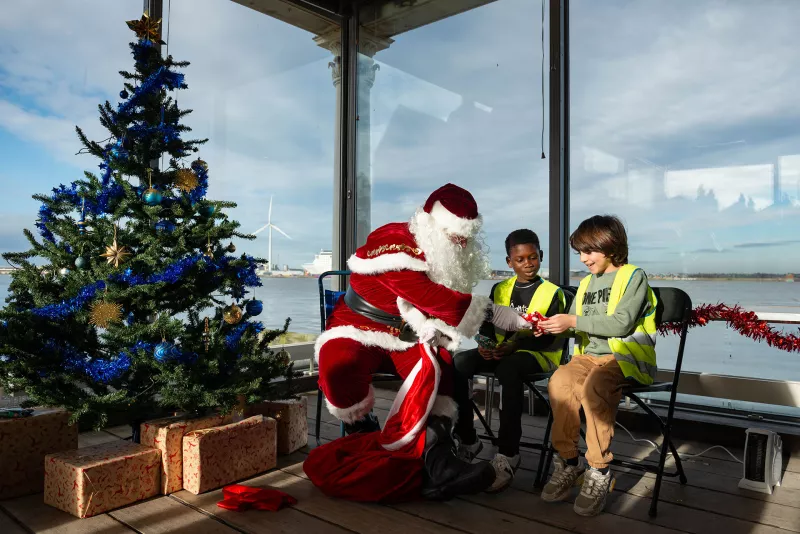
Location: London/Gravesend Remuneration: £28,971 per annum for a commitment of up to 24 days per...
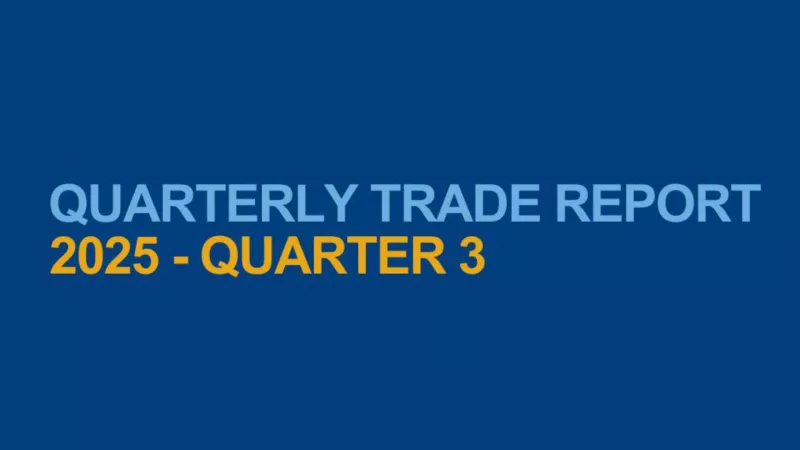
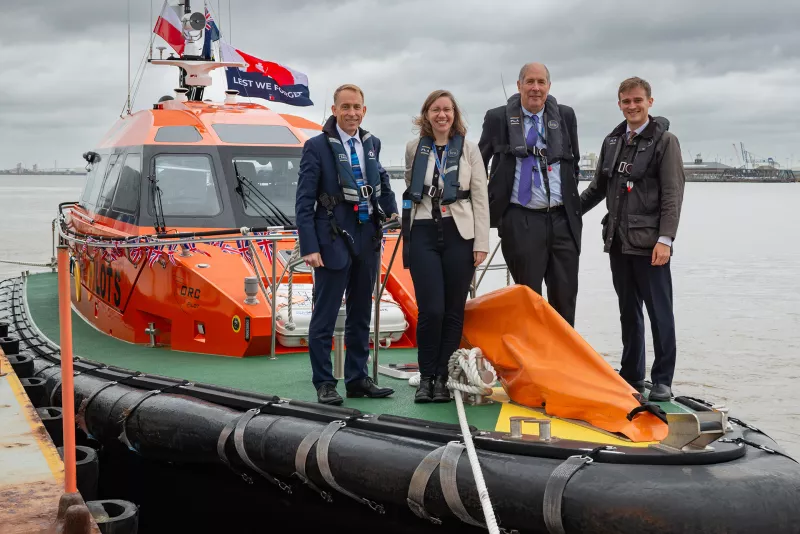
Dartford MP’s floating, fact-finding trip on tidal Thames
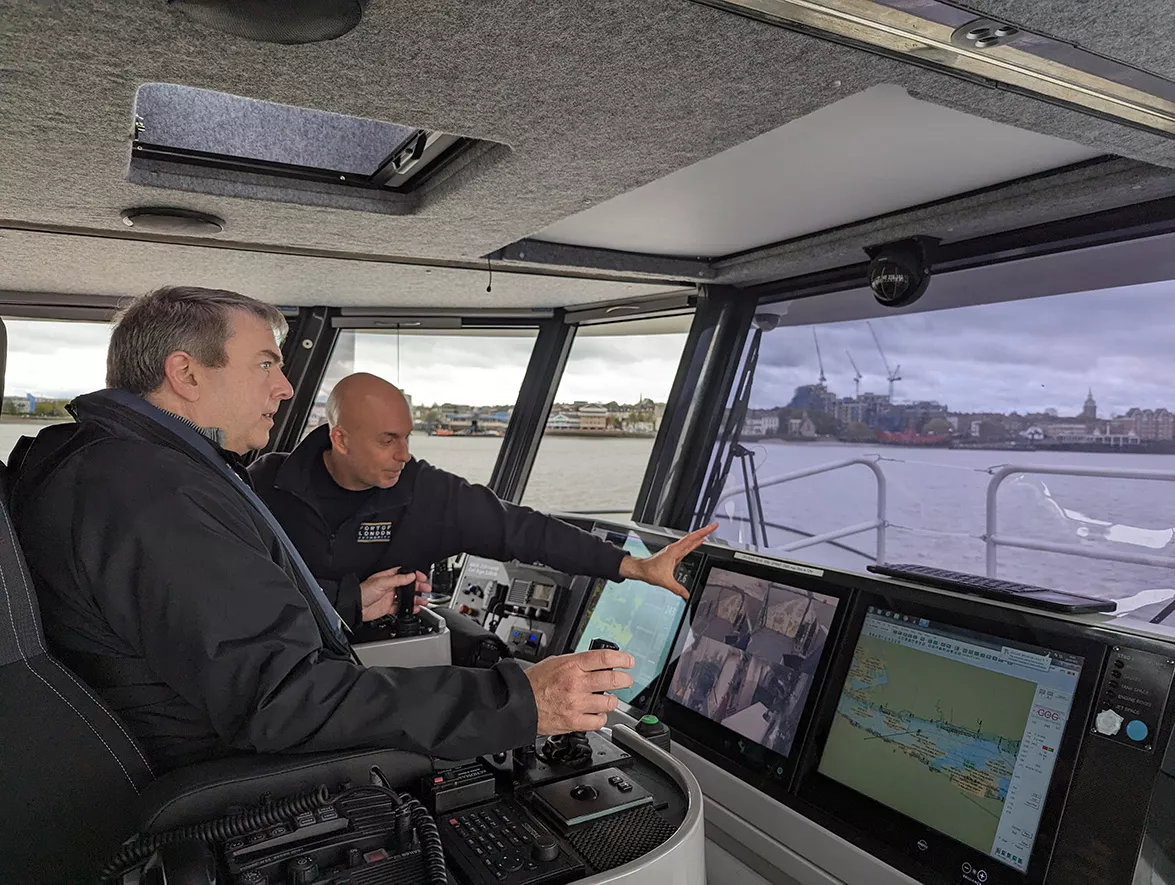
The hidden efforts of Port of London Authority (PLA) workers to protect and champion the tidal Thames were praised by Dartford, MP Gareth Johnson, on a visit to the river (29 April).
Talking points during the trip included the Thames Vision 2050., the PLA-led strategy, which aims to ensure the river thrives economically, socially and environmentally, with safety of all river users always a key priority.
Among the other topics discussed were the Thames Freeport, the development of London Gateway’s fourth berth, Tilbury2, the Lower Thames Crossing and the latest developments along the Dartford river front.
Mr Johnson commented: "PLA staff work tirelessly to ensure the river is used to its full potential.
“It was fascinating to get on the water and see this first-hand.
“Much of the PLA’s work, including regularly scanning of the riverbed and structures in and alongside the river, is vital.
“This 'unseen' activity, which most people don't even know goes on, ensures that the ships and boats using river and the businesses based alongside the Thames can go about their daily business."
John Stevenson, head of government relations at the PLA, said: ”The Thames Estuary is a hive of activity, with many new developments in and around the Dartford logistics hub.
“It was great to showcase our operations and continue our work with Gareth and his team.”
Related content

Location: London/Gravesend Remuneration: £28,971 per annum for a commitment of up to 24 days per...


Purpose-built Thames Estuary litter collector helps tackle marine pollution
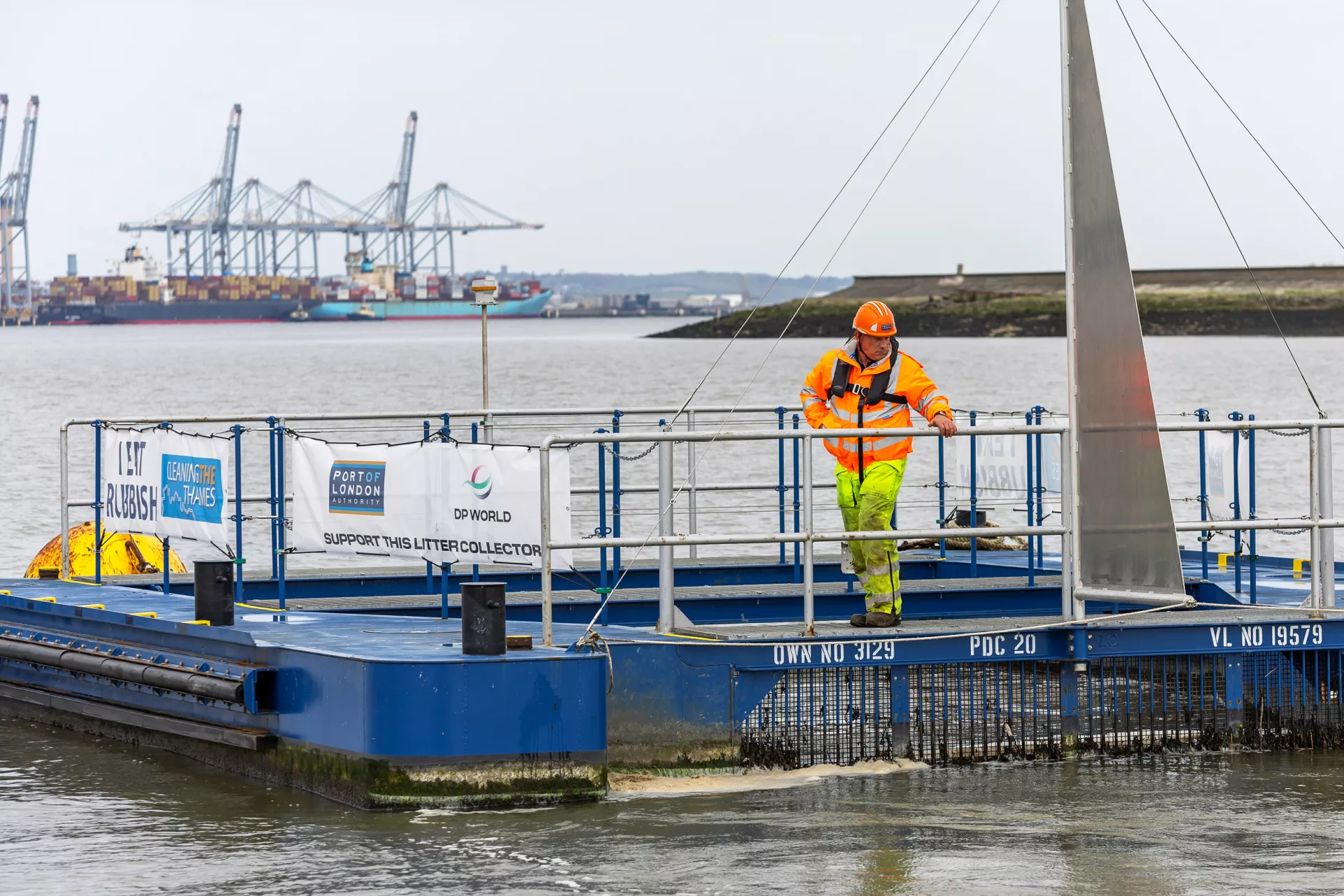
The Port of London Authority (PLA) and DP World have come together to tackle pollution in the Thames Estuary, between Essex and Kent, with the introduction of a “passive debris collector” (PDC) specially designed for the challenges of the location.
The PLA’s marine engineering team has made the new collector larger and more robust than the existing PDCs, to withstand the stronger tides and wave energy found on the Thames between London Gateway and Gravesend. The addition of the new PDC extends the reach of the nine-strong network of litter collectors from Teddington to the coast, along the 95 miles of the tidal Thames that the PLA looks after.
Jason Rudd, PLA marine engineering superintendent, led on the design/development work. He said:
“Our other PDCs were developed for the calmer waters of the upper river. The new PDC is a more robust development of that design, to ensure it can operate in the more challenging conditions of the wider, more open and choppy waters downriver, without disturbing the wildlife-rich mudflats. This new design has evolved over two years of trials, and we are confident it will be effective at intercepting and collecting floating litter as the tide comes in and goes out.”
The new PDC, including the design drawings, represents an investment of approximately £200,000, shared between London Gateway and the PLA. During the two-year trial period, monitoring is proposed by time lapse cameras and surveys, which is the successful approach on the upstream PDC’s.
Andrew Bowen, DP World’s Chief Operating Officer UK, said:
“We are delighted to be partnering with the PLA to tackle pollution and improve the health of the water in the Thames estuary around our London Gateway logistics hub. As a global logistics leader DP World aims to minimise the environmental impact of our operations, with our goal being zero harm to the environment. We are committed to playing our part to preserve our planet for future generations, by reducing emissions across our global portfolio, protecting ecosystems and enhancing and restoring oceans.”
Each year, the PLA’s network of litter collectors/PDCs stop up to 200 tonnes of waterborne litter floating out to the North Sea, where it would otherwise endanger wildlife and pollute the ocean with plastic. This new PDC is an important milestone in the PLA’s Thames Litter strategy, and tangible progress towards the goal of a clean river, set out in the Thames Vision 2050 strategy.
Related content

Location: London/Gravesend Remuneration: £28,971 per annum for a commitment of up to 24 days per...


Tilbury Seafarers Centre basketball court back in action
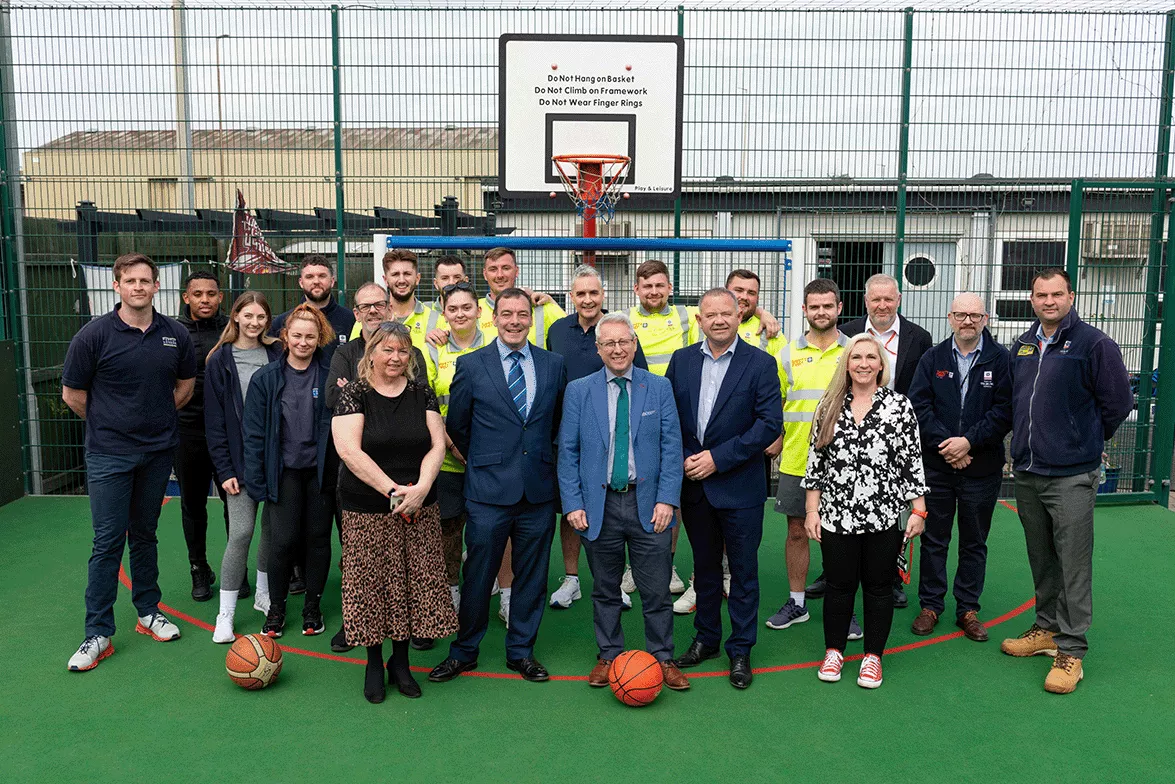
The basketball court at Tilbury Seafarers Centre, used by seafarers to relax and socialise while in port is back in use thanks to a £12,000 grant from the Port of London Authority (PLA).
The Centre welcomes over 6,000 seafarers a year, with many more reached on the estimated 1,500 ships visited by chaplains based at the Centre. The seafarers visit the port on ships carrying essential cargoes including food, fuel and medicines to the country, and leave with British export goods.
The site provides space for seafarers to come ashore after weeks at sea, ashore, to relax and secure personal items including toiletries and sweets, for the next leg of their voyage. A 2018 upgrade saw the addition of outdoor activities, with a table tennis table, seating and basketball court that doubled as a football pitch at the 24-hour “safe haven”.
The Centre provided essential care to seafarers, who were mostly confined to their vessels in port, throughout the pandemic. During this time the basketball court fell into a bad state of repair and was unfit for use. Now it is refurbished and back in use, after the PLA stepped in to fund a replacement playing surface.
PLA corporate affairs director, Alistair Gale said: “Seafarers are as important to supply chains today, as they have been throughout history. We are proud that when they visit the UK’s largest port they receive a warm welcome through our partners, particularly the Queen Victoria Seaman’s Rest, who operate the Tilbury Seafarers Centre. The basketball court has been a really popular facility since it opened in 2018. Now, we’ve helped get it back into top condition so it can be enjoyed by seafarers for years to come.”
QVSR runs the Centre, their CEO, Alexander Campbell said: “Seafarers are often forgotten, an invisible workforce bringing our food supplies and goods to our shores. We are delighted that the PLA supports our welfare work here at QVSR Tilbury Seafarers Centre. The replacement of our basketball surface means that thousands of seafarers can enjoy this facility whilst in port. Some seafarers are at sea for nine months at a time, physical activity is good for their physical health and mental health. On behalf of the seafarers who will use our basketball court – a big Thank You to the PLA.”
Teams from the PLA and Port of Tilbury came together for a friendly basketball match to mark the reopening of the court. A closely fought game ended in a 6-6 tie.
“Tilbury seafarers centre is unique in offering visitors an outdoor space to relax or get active, when they visit the Port,” said Paul Dale, Port of Tilbury asset and site director. “It was great to mark the reopening of the court with Tilbury and PLA teams competing in what might become an annual fixture.”
The PLA have a strong relationship with the centre, providing an annual grant of some £37,000, and support for the annual Christmas ‘gift giving’ to seafarers in port. During COVID, the PLA worked with the centre to provide seafarers with pre-paid SIM cards to keep in touch with their families at home.
Related content

Location: London/Gravesend Remuneration: £28,971 per annum for a commitment of up to 24 days per...


Drawn to the river
Peter Kent
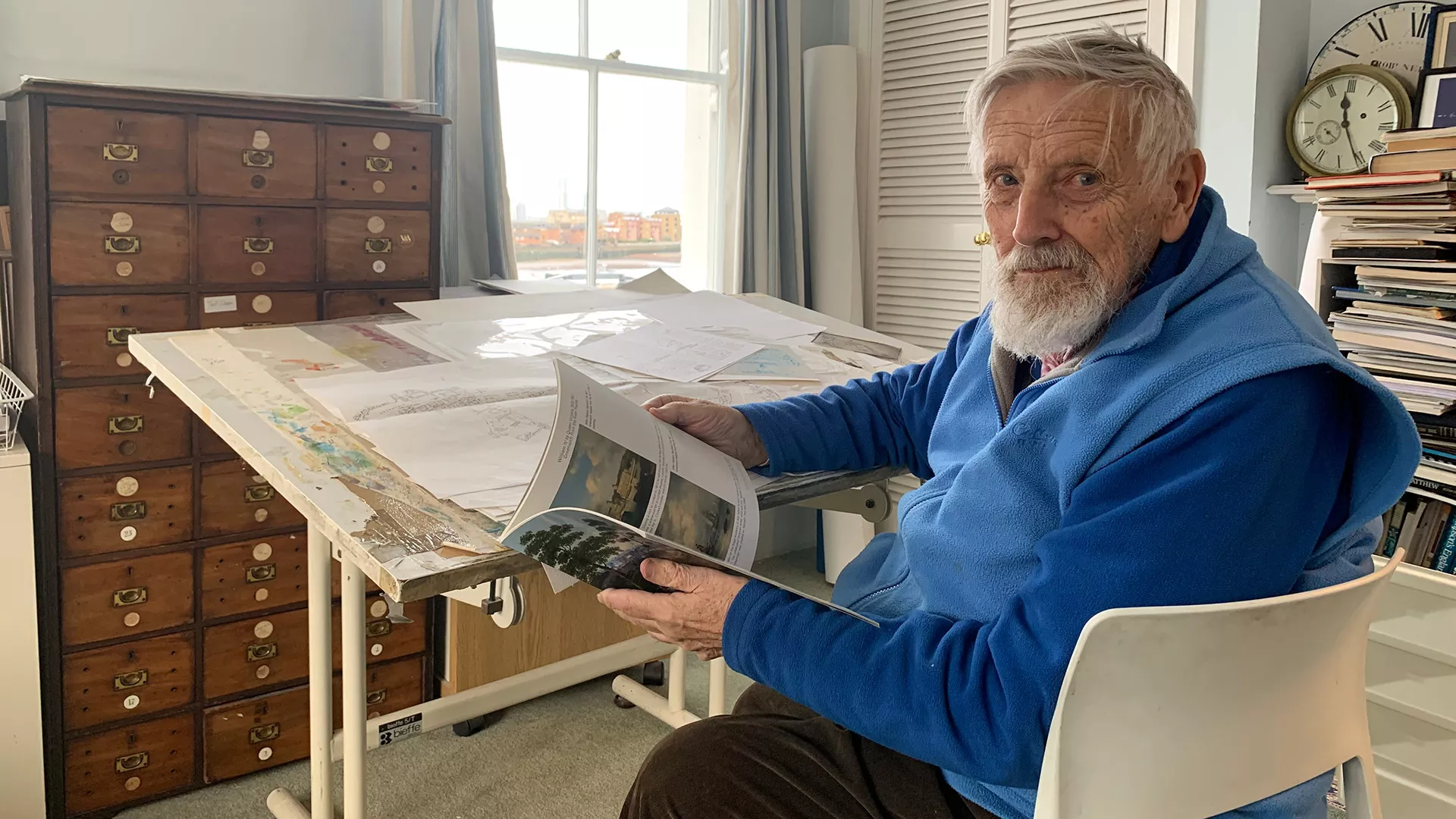
On the eve of his 90th birthday (7 May 2023), Greenwich-based Peter Kent is holding a final exhibition for his family and friends of his life’s work as a sketch artist – with the river to the fore, as usual.
Essex boy
“As a lad, I loved to explore my hometown of Colchester and its port at the Hythe, where Thames sailing barges and Everard’s colliers used to trade.
“We had a family retreat, a beach hut at West Mersea, overlooking war-damaged vessels anchored in the River Blackwater.
“During the war, it had served as a warden post for Colchester Grammar School.
“A keen cyclist, I often went exploring the River Colne.
“While at school in Stowmarket, I also got to know, Ipswich Dock, Harwich and Felixstowe town, which evolved into a massive container port.
“When I enrolled at Colchester Art School, I began to sketch local maritime and riverine subjects that caught my eye – local water mills, the Thames sailing barges and other vessels.”
Coronation memories
“By the time of The Queen’s coronation in 1953, I had advanced to Regent Street Poly in London.
“We celebrated by throwing a party in Sunlight Wharf, near Cannon Street Rail Bridge, which had suffered from bomb damage in the war.
“A generous waterman, who was refurbishing it, helped us create a temporary dance floor and roof.
“All was fine, till the tide dropped, leaving the dancers even more disorientated by the sloping deck.
“Earlier, we had retrieved some man-sized, rose-shaped lights that had been suspended above Regent Street for the Coronation.
“We transported them to the party venue by a handcart from the poly’s works department.
“En route we banged into a black cabbie.
“Luckily, the damaged wing popped back into shape, before the irate owner could vent his wrath.
“The waterman had also advised we needed a safety boat moored nearby.
“A few of us navigated it down river from the poly rowing club at Chiswick.
“It was probably my first rowing trip on the river.
“I remember it vividly to this day.”
PLA permit
“While at the poly, myself and a fellow student obtained a PLA pass to sketch in the Royal Docks, where my brother was a cadet aboard a Royal Mail ship trading with South America and the States.
“We both enjoyed the hospitality and camaraderie of the dockers, who seemed intrigued by two long-haired, young artists arriving at their workplace.
“On a summer student day out, we sailed on a paddle steamer to Southend and back, taking in famous landmarks, including Greenwich, where I now live, and the giant power stations of the era.
“The amount of shipping we saw was extraordinary.”
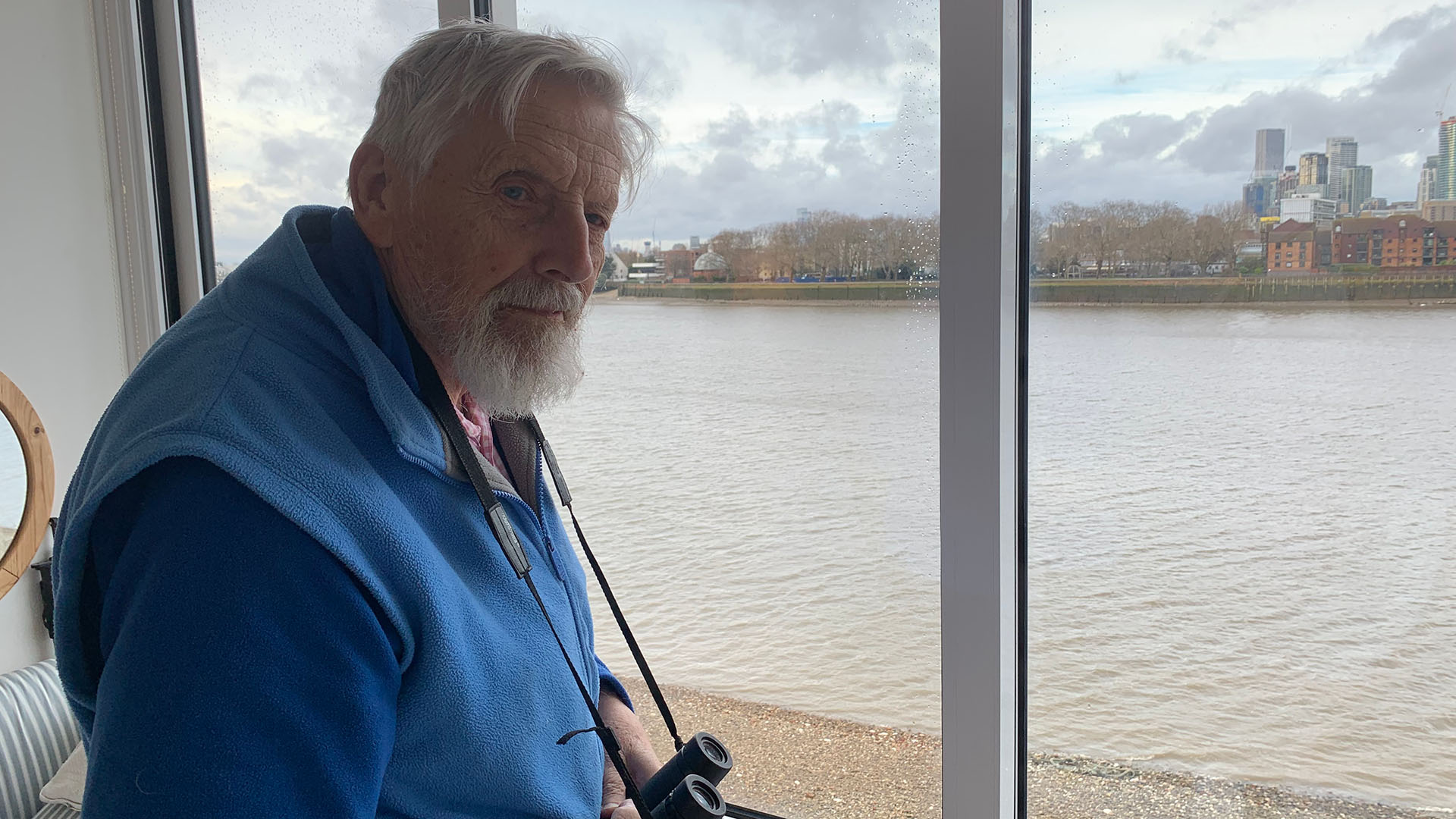
Foreign attractions
“It inspired me to cross the channel to sketch canal and riverside landscapes in Holland and France.
“National service led to my ultimate sea voyage – to Singapore and Hong Kong.
“I worked photographing canals for intelligence purposes.
“It opened up for me a new world of overseas ports.
“The images lodged in my head later became a became series of cartographic images of 20 world ports, which form part of my 90th birthday exhibition.”
Contracts and contacts
“When I turned professional, getting commissions from London-based firms was a challenge initially, so I extended my search further afield and found jobs in Norway and Sweden, mainly for advertising agencies.
“I end up staying in Scandinavia for two years.
“Early on, I also managed to earn a living servicing real estate interests, in the UK and across Europe.
“The development of London Docklands - an area I overlook daily from our house - provided many fascinating commissions, including a lot of aerial images.
“Later in life, as a friend of the Maritime Museum in Greenwich, I received a wide range of interesting commissions.
“From the late 1980s, I also wrote and illustrated RiverWatch, for The Guide magazine, which sustained my interest in maritime matters and grew into a blog.
“Throughout my career, I have kept a close eye on the tidal Thames.”
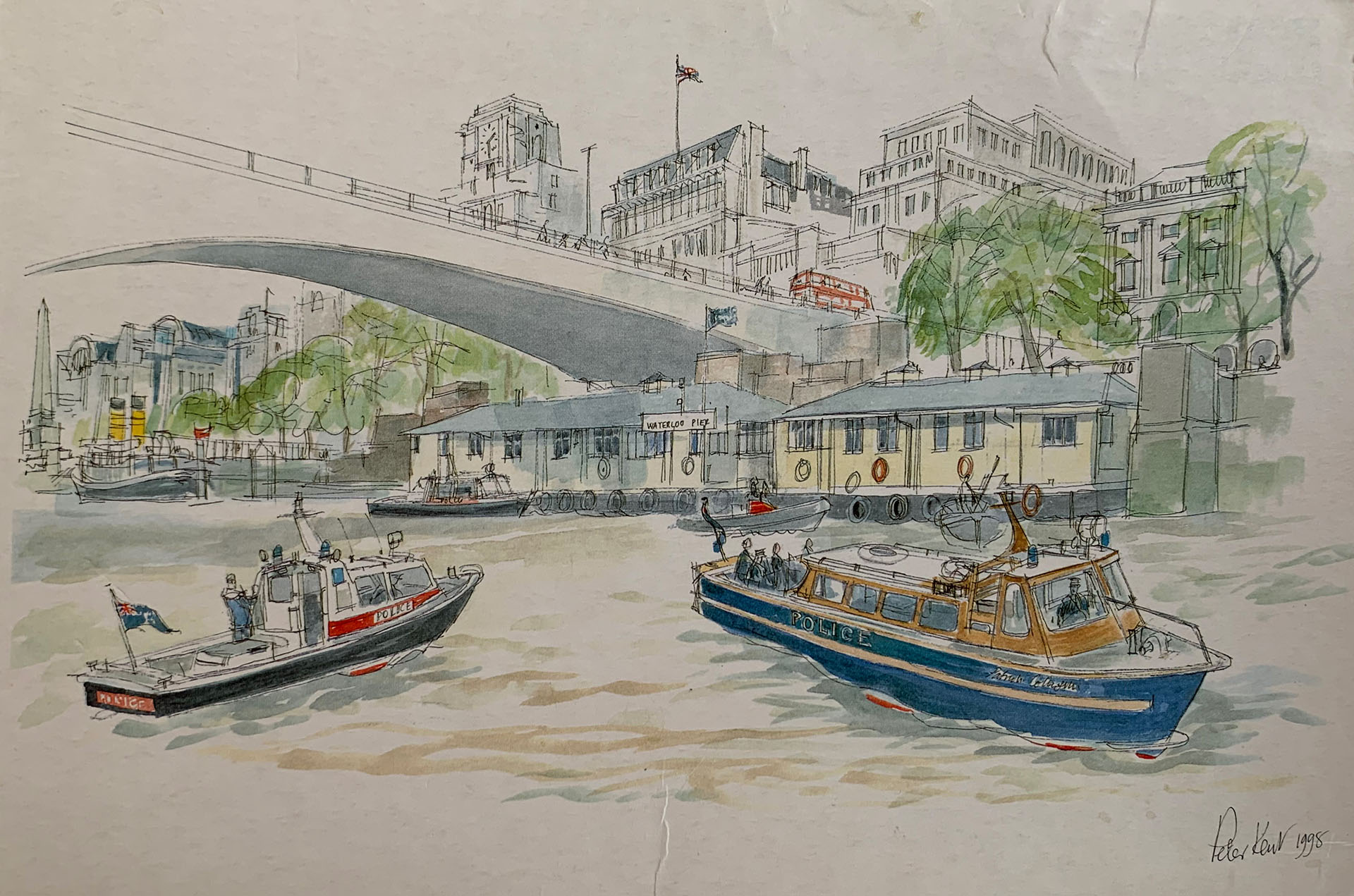
Capital calling
“On my return to dear old London from Scandinavia, I rented a shop in Bloomsbury for a group of fellow artists.
“Then I met my wife-to-be, Judy, and together we hired a studio in Regent Square.
“We both worked hard, enabling us to move to Greenwich, buying the property where we still live today.
“With commanding views of the river to the east and to the west, it’s our pride and joy.
“We never tire of watching the constantly changing river landscape, as well as the wildlife.
“It’s also great observing from the comfort of our front room, all the rowers enjoying the river.
“It’s a privilege to have such a wonderful bird’s eye view of spectacles on the water, such as The Great River Race each September, as well as other events, such as The London Marathon.”
A life-long fascination
“I have greatly enjoyed looking back through my life’s work in preparation for a last exhibition, coinciding with the start of my tenth decade.
“I have kept it all filed away and take great pride in it.
“It will be fabulous to reminisce with all the family and friends I have invited to come along.
“I feel very much alive and well!”
Quick fire
- The Thames in just three words? Can I have four? “More exciting each tide.”
- Favourite Thames-side restaurant or pub? From our top floor window, of course.
- Favourite building on the river? Again, it has to be the Royal Naval College, round the corner in Greenwich.
Video: Hear from Peter about his love for the Thames (2015)
Related content

Location: London/Gravesend Remuneration: £28,971 per annum for a commitment of up to 24 days per...


PDL Marine is contracted to refit two of the PLA’s Hydro vessels
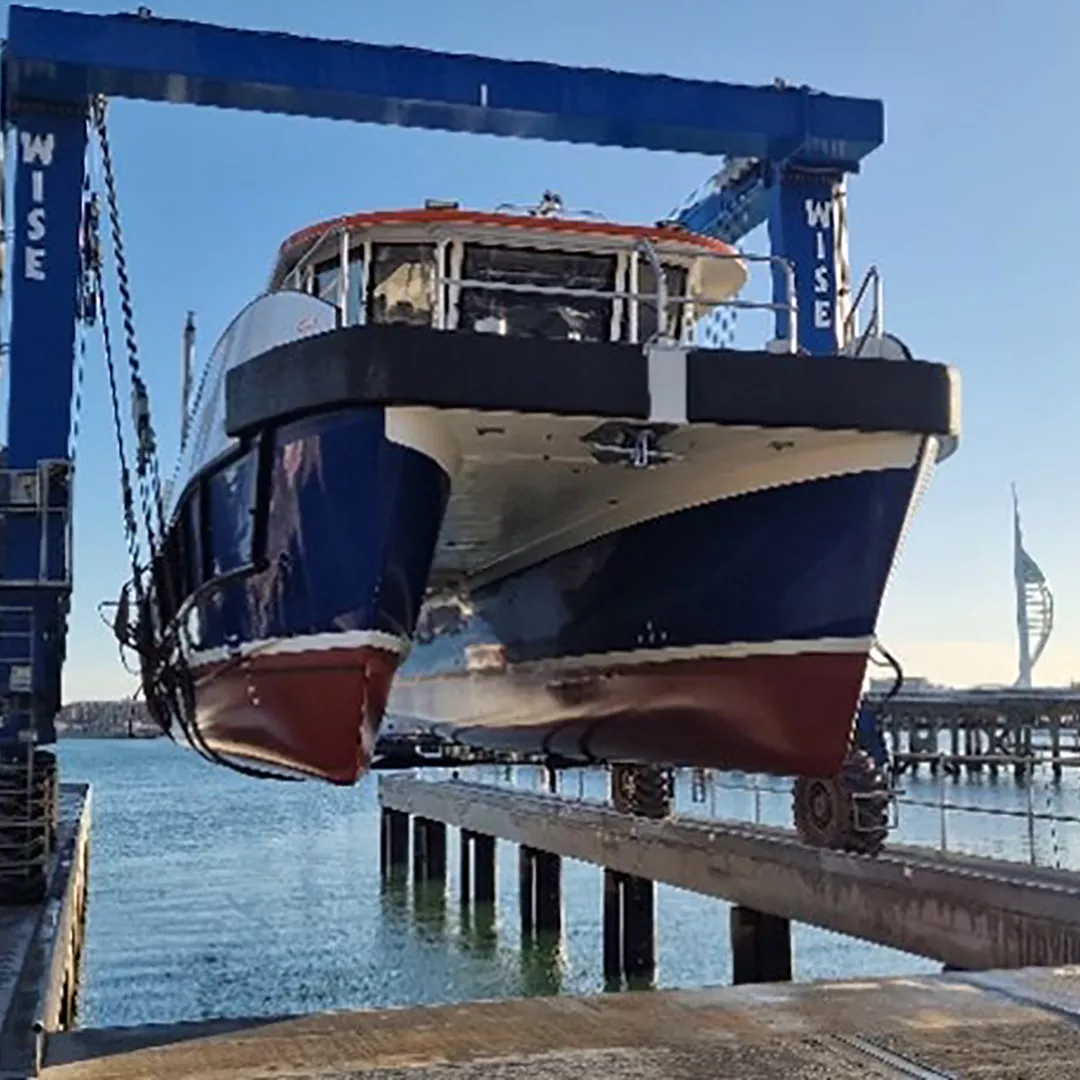
PDL Marine, a boat building and fabrication company, has signed a contract with the Port of London Authority (PLA) to refit two of the organisation’s vessels that are used for hydrographic services.
With a jurisdiction of 95 miles of the tidal Thames, the PLA, the UK’s largest port, has contracted PDL Marine for an extensive refit of these two vessels, ensuring the PLA’s in-house marine engineering team is free to focus on routine vessel maintenance as trade on the river continues to grow.
The PLA has a world-leading hydrographic department, the busiest in the UK. The contract with PDL Marine, signed in January, is to refit the PLA’s 18 metre survey vessel Maplin and the 14-metre vessel Thame, formerly an offshore wind farm vessel that was converted for hydrographic use in 2017. The Maplin is finalising the refit this week with target now of being completed by the 6th and transiting back to the Thames at the end of the week. Work will begin on the Thame soon.
John Dillon-Leetch, the PLA’s port hydrographer, said: “This is Maplin’s first major refit since it was built and it will see us well-positioned to deliver our safety of navigation survey programme across the 400 square miles of the tidal Thames, as well as supporting the PLA’s commercial services provision for customers on the Thames and in the South-East.”
Daniel Harwood, the PLA’s marine engineering superintendent, said, “With in house demand for our core engineering services continuing to increase, it is helpful to outsource the refit of these two vessels to PDL Marine, and we’re confident that they will do a good job.”
Philip Lovegrove, managing director of PDL Marine said, “It is a great privilege and pleasure to be able to assist the Port of London Authority with the refit works and we look forward to cementing the relationship for future projects to come.”
Related content

Location: London/Gravesend Remuneration: £28,971 per annum for a commitment of up to 24 days per...


BPA Conference 2023 opportunities open
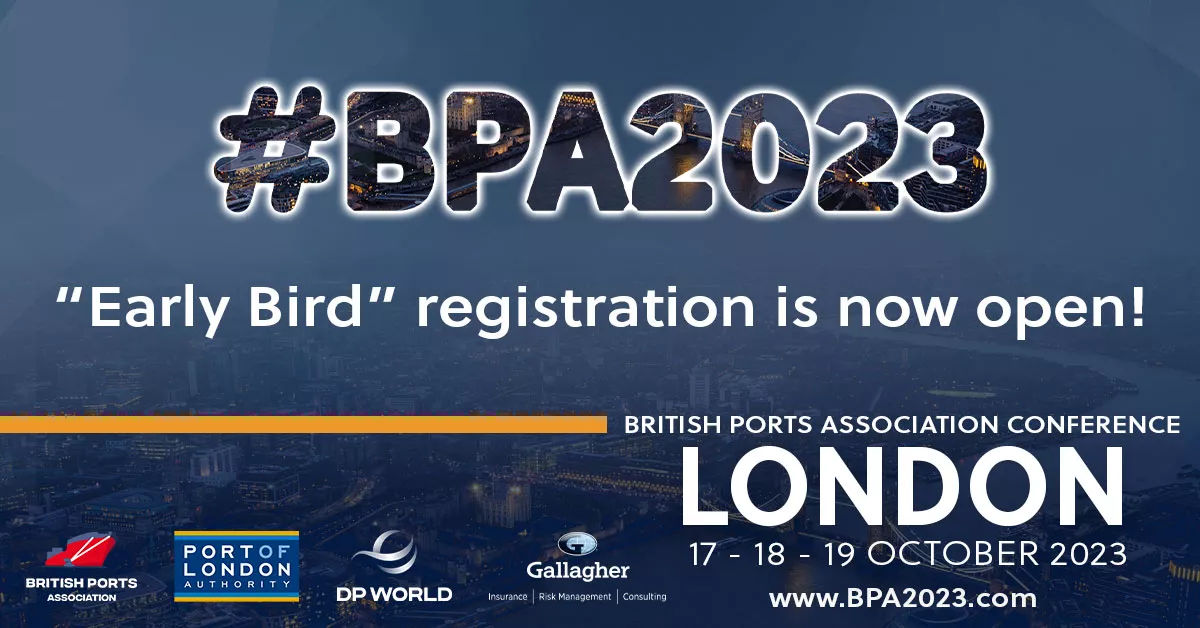
This autumn, the UK’s largest port, the Port of London Authority (PLA) will be hosting the annual British Ports Association (BPA) conference, 17-19 October 2023. The event is now open to opportunities from sponsorship packages to early bird tickets.
One of the most prestigious events in the UK maritime industry, the BPA conference provides a unique opportunity to come together to hear about the latest policy developments and industry trends within the UK ports and harbours sector.
With an attractive programme already scheduled for the event, including a Silver Sturgeon river cruise, a rooftop reception in the Sky Garden and a Gala Dinner at 8 Northumberland Avenue, as well as the announcement of two significant partners, DP World and Gallagher, this year’s BPA conference is shaping to be the most exciting yet.
Sponsorship opportunities are now open to non BPA members, including gold, silver and bronze levels. There is also one full partnership opportunity still available. For attendance, rather than sponsorship, ‘early bird’ conference passes will be available until the end of May. There are also a limited number of Gala Dinner and Friday river tour tickets still available.
Robin Mortimer, chief executive of the PLA commented:
“We’re delighted to be hosting the BPA Conference 2023 in London. There is a strong conference programme shaping up with keynote speeches, and topics including sustainable port development, freeports, offshore energy and port opportunities, and climate change and adaptation.
“Alongside this is a unique programme of events in the heart of the capital city. We look forward to welcoming senior executives from across the maritime industry to London in the autumn.”
Richard Ballantyne, BPA’s chief executive, said:
“The countdown is now on and we are getting ready for what will be a truly memorable spectacle in the Capital, this autumn. Our hosts at the PLA are pulling out all the stops and we are working on an agenda with a range of genuinely high-quality speakers and topics.
“This is the one time of the year that the UK ports industry gathers together, and we are expecting record numbers in London. The message to everyone is ‘get involved’!”
Related content

Location: London/Gravesend Remuneration: £28,971 per annum for a commitment of up to 24 days per...


Annual Report and Accounts 2022
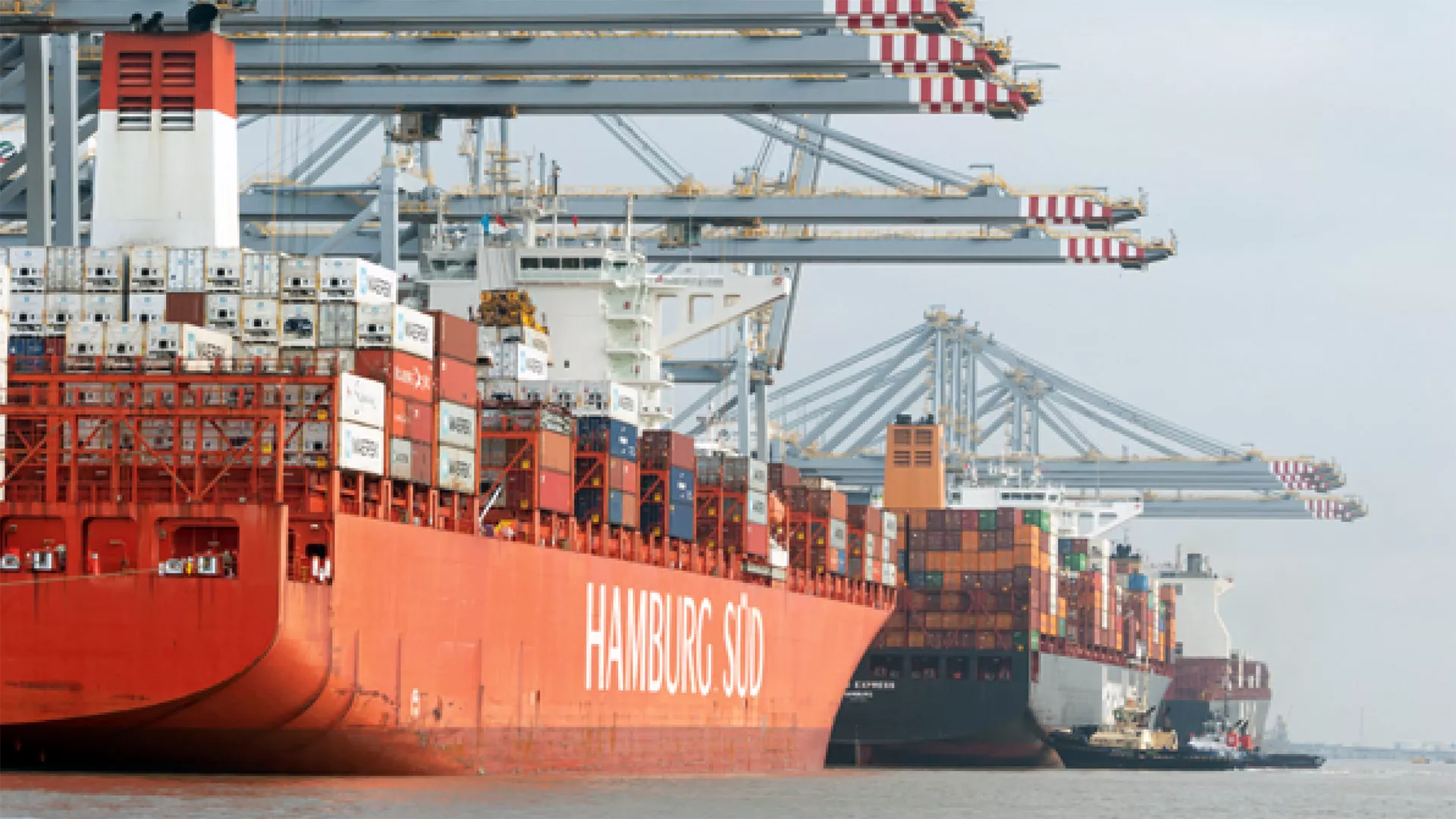
OVERVIEW
ABOUT THE TIDAL THAMES
The tidal Thames is 95 miles of river from Teddington Lock, through central London, out to the North Sea. The river is home to the UK’s biggest port, the busiest inland waterway for freight and passengers and a growing centre for sporting activity.
ABOUT THE PLA
As a Trust Port, we hold the Thames in trust for future generations. We have no shareholders, so operate for the benefit of customers and stakeholders now and in the future.
2022 AT A GLANCE
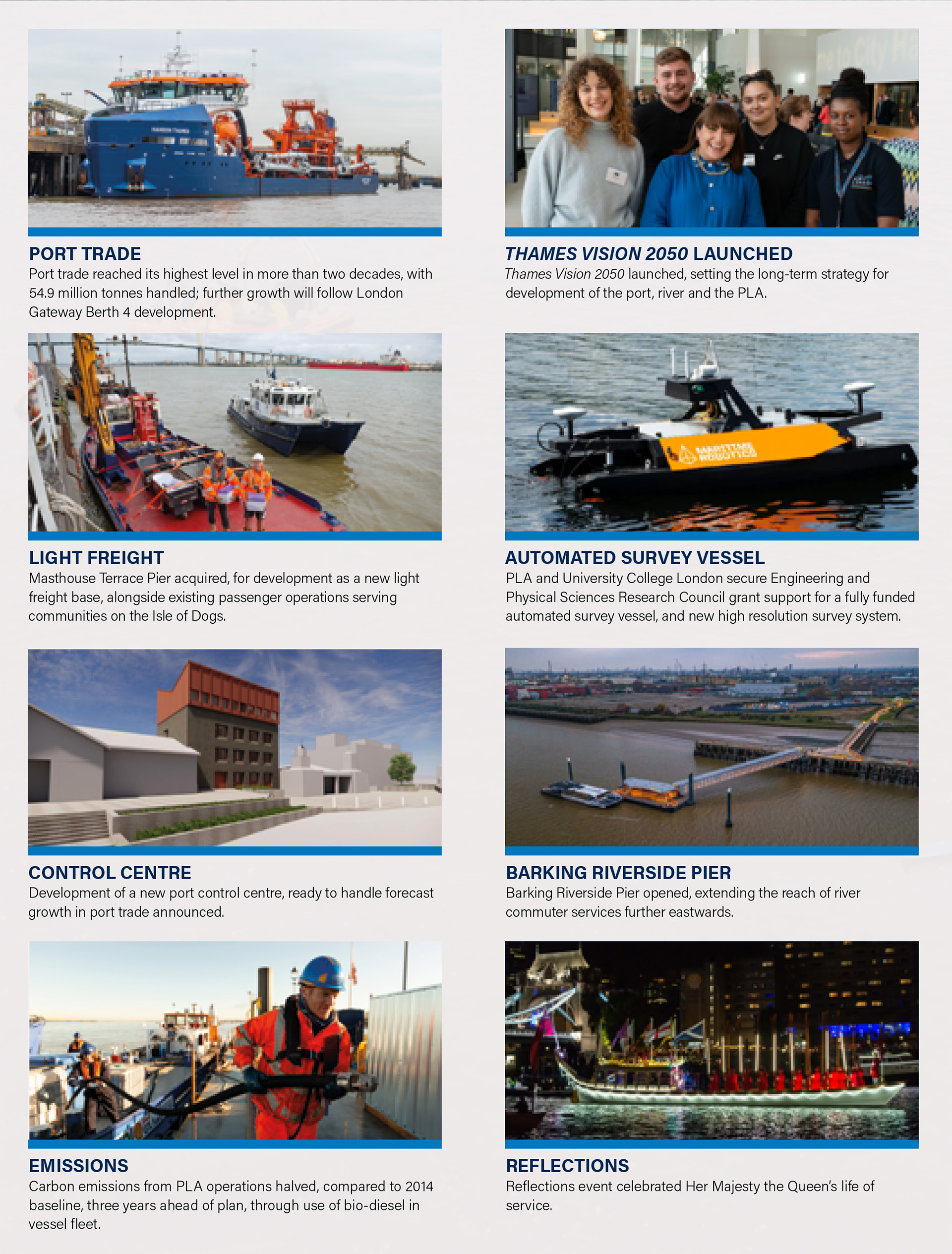
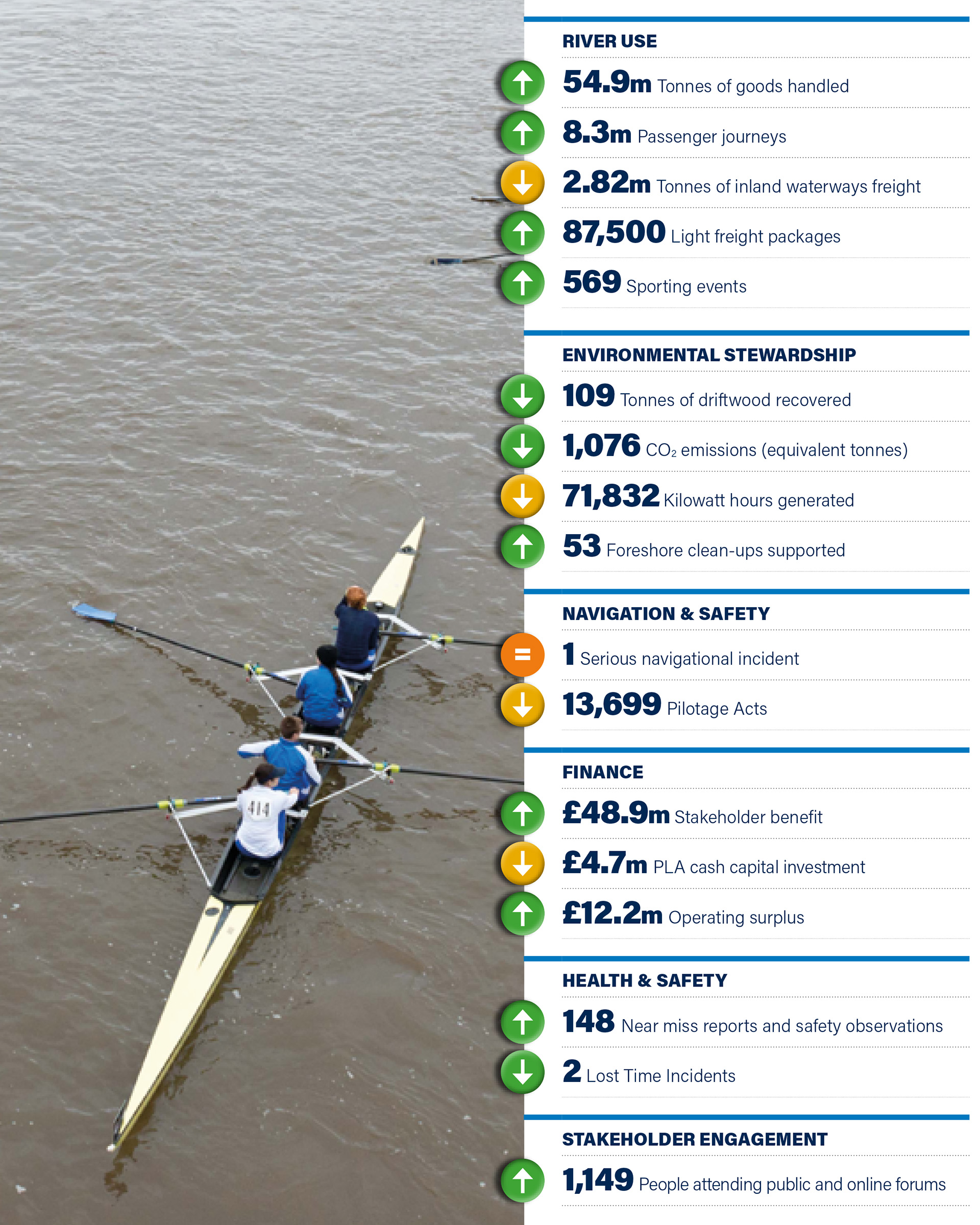
OUR VISION FOR THE THAMES IN 2050
The UK’s leading port, central to the nation’s economy, with Net Zero emissions. A clean river, free of pollution and rubbish, supporting more sport, passengers and freight. A resilient Estuary, adapting to climate change and richer in wildlife. A more diverse Thames, providing jobs, learning and enjoyment to the whole community, and always, everyone, staying safe.
Thames Vision 2050 is built around three interconnected themes, centred on the role the river plays for people and the environment.
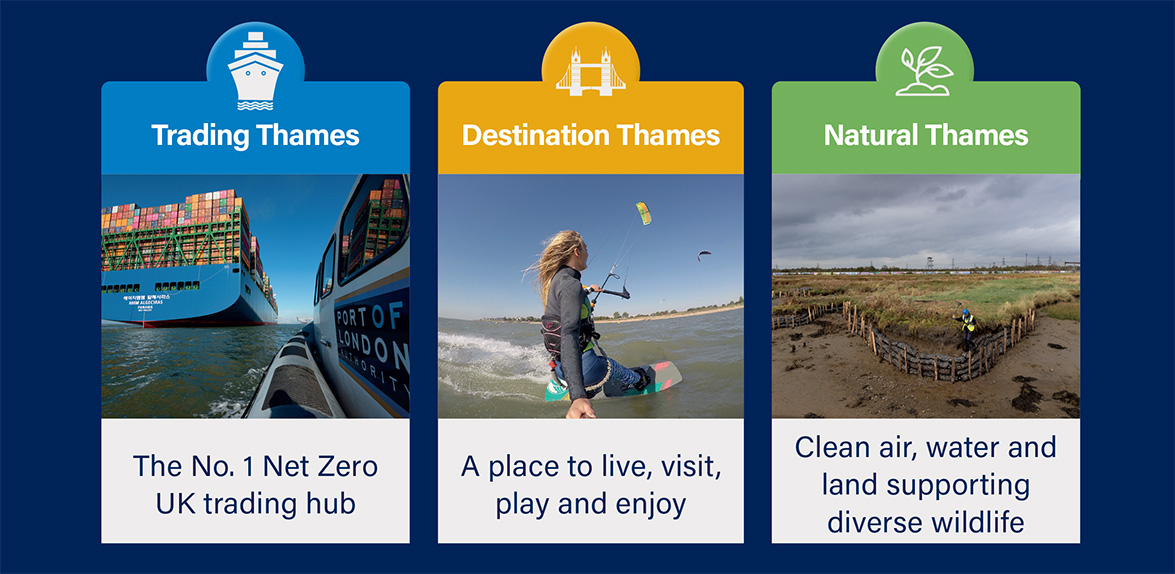
Delivering the Vision: 2030 Action Plan
To deliver the Vision we are working to an immediate Action Plan, between now and 2030. We are working with partners to complete the following actions.
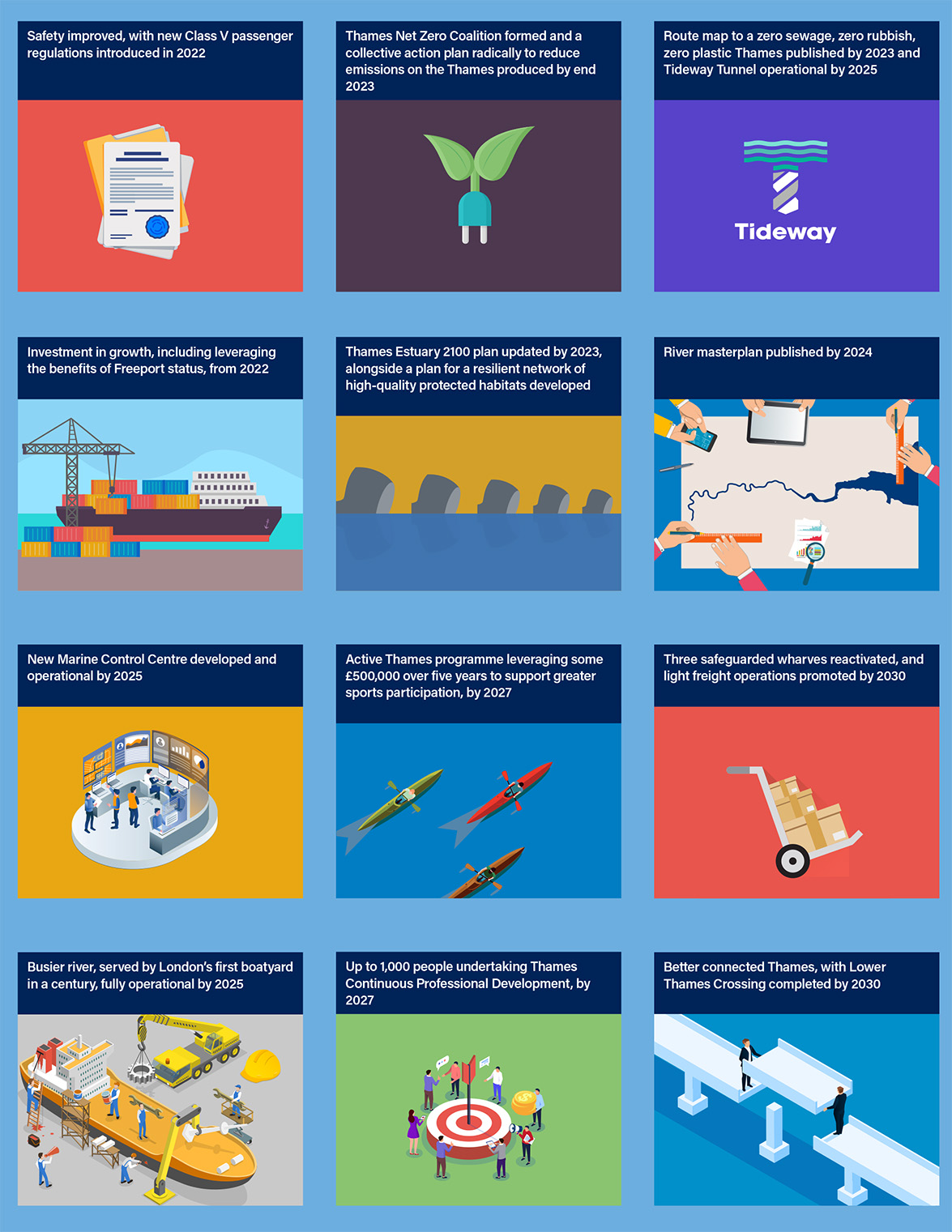
For the latest on Thames Vision 2050, visit: www.pla.co.uk/ThamesVision
STRATEGIC REPORT
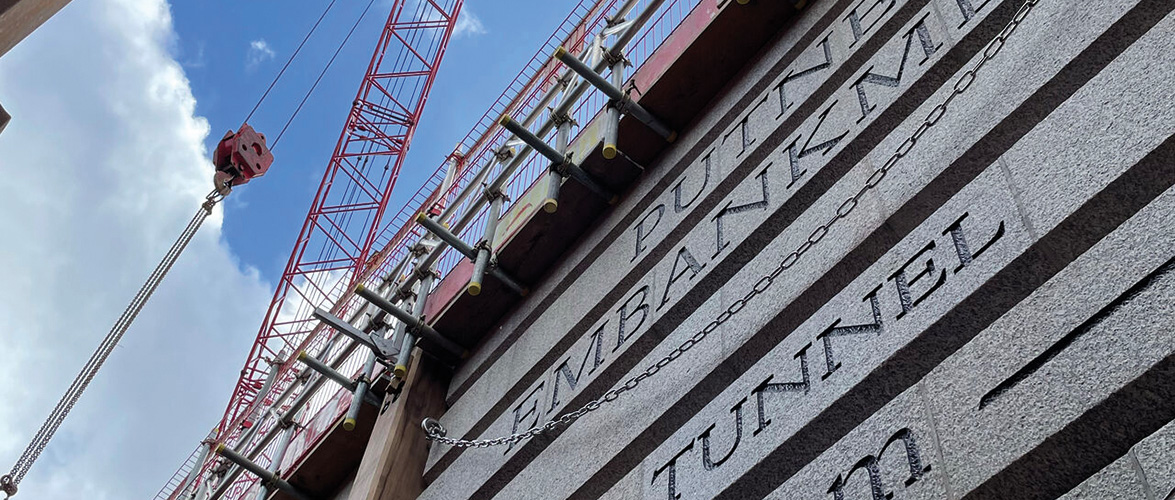
CHAIR'S STATEMENT
JONSON COX CBE
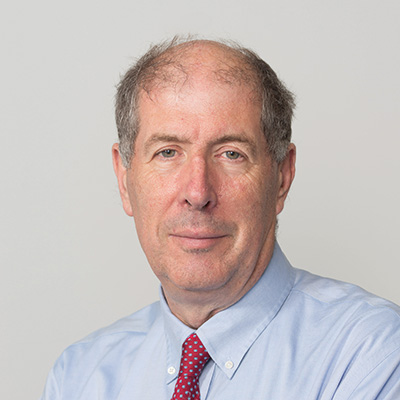 At the PLA, we play an essential role in sustaining and improving the tidal Thames as trading hub, destination and natural haven. As custodians of the river, we aim to drive positive impact, reinvesting profits, supporting sustainable growth in port and river use, alongside an improving environment.
At the PLA, we play an essential role in sustaining and improving the tidal Thames as trading hub, destination and natural haven. As custodians of the river, we aim to drive positive impact, reinvesting profits, supporting sustainable growth in port and river use, alongside an improving environment.
Thames Vision 2050, launched last year draws together, and makes more ambitious our goals for the medium- and long-term evolution of the port and river. These are for the No. 1 Net Zero UK trading hub, a place to live, visit, play and enjoy, providing clean air, water and land supporting biodiversity and public use. It is fundamental for us that the river and the PLA is open and more accessible to all.
Safety underpins all elements of river use. It remains our prime focus. This ranges from the day-to-day oversight of operations in the UK’s largest port, to ensuring suitable continual skills development is established as a cornerstone of river operations.
The Vision was shaped in consultation with our diverse stakeholder community. We have engaged swiftly on the medium-term 2030 Action Plan of strategic partnering and targeted investment to deliver objectives of the Vision.
Continuing investment in our core pilotage service is an immediate priority, to meet our customers' growing demand of the UK's biggest port. The masterplan we will develop for the tidal Thames is also a major focus, enabling the PLA and partners to make ‘no regrets’ decisions for the development of the river.
The creation of the Thames continuous professional development (CPD) scheme, with the Thames Skills Academy (TSA) and the Company of Watermen & Lightermen (CWL) is an essential innovation. We are backing it with investment to ease access to simulator training, before CPD becomes mandatory from 2024.
Improving and protecting the Thames environment is a key theme of the Vision and focus for us as an organisation. The Vision sets clear and demanding targets for us, including to work with those responsible for the discharge of pollution to agree the steps to create a clean river, free of sewage and plastics.
The launch of the Vision demonstrates the continuing evolution of the PLA. We are much changed as a partner to our stakeholders and are changing too as an organisation. Over the next two years we will transform our marine control operations, with the largest investment in our core services in more than two decades. That will sit alongside our continuing drive for operational efficiency, and improving customer service and supporting innovation on the river, including trials of light freight delivery by river to central London.
Since joining as chair last April, I have witnessed first-hand the dedication of the PLA team to helping people make the most of the river, safely. To them I offer my sincere thanks.
My thanks also to the PLA Board and the contribution of all our Board members. In January 2023 we welcomed Vanessa Howlison as a non-executive, and chair of the audit and risk committee. Special thanks to Judith Armitt, Darren James and Alun Griffiths, who are concluding their time with the PLA after more than six years’ valued service.
Jonson Cox CBE
Chair
3 May 2023
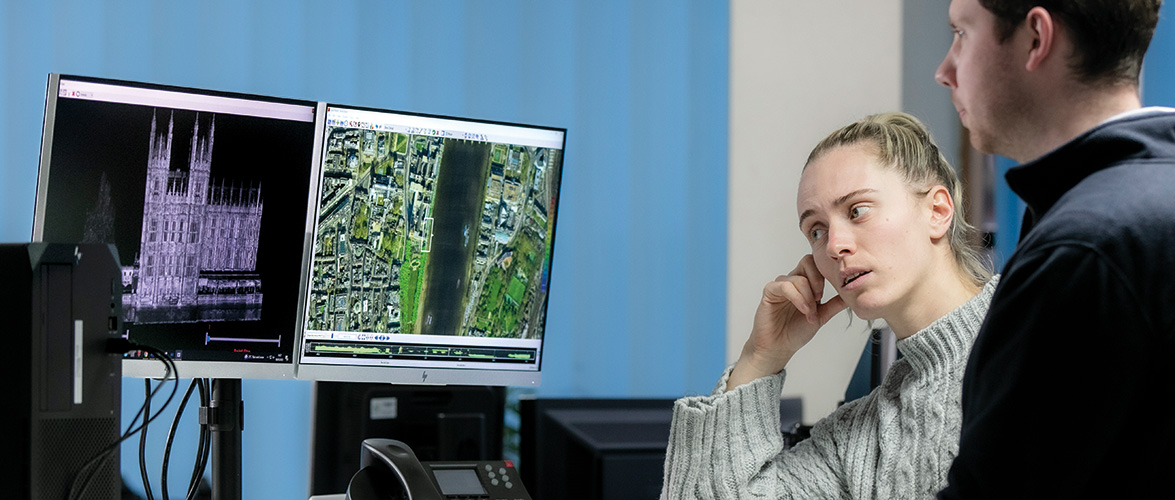
CHIEF EXECUTIVE'S STATEMENT
Robin Mortimer
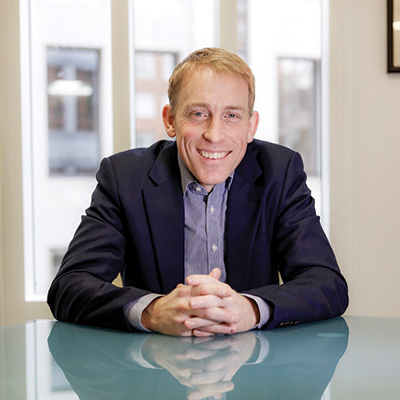 2022 saw substantial progress in the PLA, port and river community. Together we consolidated the foundations for sustainable growth and established a clear future path, through Thames Vision 2050. At the same time, the organisation delivered a strong performance across all key areas, from safety to financial results, in the face of growing economic headwinds.
2022 saw substantial progress in the PLA, port and river community. Together we consolidated the foundations for sustainable growth and established a clear future path, through Thames Vision 2050. At the same time, the organisation delivered a strong performance across all key areas, from safety to financial results, in the face of growing economic headwinds.
SAFETY
Safety is fundamental to our business. We work to help river users enjoy the Thames in safety and have the same health, safety and wellbeing commitment for our employees and contractors.
Our three-year Marine Safety Plan targets a 10% reduction in serious navigational incidents and we remain on track for this with a single incident reported in 2022.
Near miss reporting during the period rose by 80%, after a focused promotional drive. The navigational safety team worked closely with operators and river users along the Thames, providing expert counsel and advice to support greater safety on the river. To improve Thames safety over the coming years, we will be mandating Thames Continuing Professional Development from 2024.
At the end of 2022, Parliament passed new Regulations so that, from 2024, the Maritime & Coastguard Agency (MCA) will be applying modern safety standards to historic vessels operating on the river. This is a very welcome development, which the PLA has been keen to see for many years, and will address one of the most significant safety risks on the tidal Thames. We thank Department for Transport (DfT) and the MCA for making this happen, and we will be working with the MCA and Thames operators on the implementation of the new Regulations.
Personal Health & Safety was a major focus for the team through the year, with a reduced number of Lost Time Incidents, compared to the previous year and a review of all our risk assessments completed across the business. In a focused review, we came together as a cross company team to shape our future Health & Safety strategy.
PORT & RIVER OPERATIONS
Trade in the port in 2022 was 54.9 million tonnes, increasing by 6% (2021: 51.8 million tonnes). London remains the UK’s largest port by volume of goods handled.
Pilotage acts in the year fell slightly to 13,699, as the mix of vessel types calling evolved (2021: 14,037). The service level was 98.5% (2021: 99.1%), remaining above our 98% target level. Fourteen trainee pilots joined the business in the year. Investment in continued pilot trainee recruitment is a key priority, in line with operators’ planned terminal developments.
Investment in Thameside terminals continues apace. DP World is developing the fourth berth at London Gateway and Forth Ports is completing commissioning of the building materials handling systems at Tilbury2. Both are partners with the Ford Motor Company and the PLA in Thames Freeport, which will drive future investment and growth. At the same time, ferry operator CLdN is increasing calls on the Thames and Stolthaven is advancing its jetty replacement works.
Prospects for growing use of the river for inland freight are extremely positive. Alongside the established use of the river for moving bulk materials, logistics companies’ interest in the Thames as a light freight route is at unprecedented levels. We are supporting and facilitating their trial river operations, while also leading studies into the pier adjustments needed to accommodate this new river use.
The recovery of passenger operations continued, post-COVID restrictions. More than eight million passenger trips were taken during the year, almost double the number in 2021. Investment in further piers and new vessels with cleaner propulsion systems is setting the sector up for long-term sustainable growth.
FINANCIAL PERFORMANCE
The organisation delivered a positive financial performance in 2022, as trade increased and we addressed business impacts flowing from the Russian invasion of Ukraine. The operating surplus of £12.2 million was up 40% on £8.7 million in 2021, on a turnover of £78.2 million (2021: 71.4 million).
For the medium- and long-term we are well set, with plans in place to manage the principal liabilities and cash available to make strategic investments which support delivery of Thames Vision 2050 goals.
INVESTMENT
We invested £4.7m in PLA capital projects in 2022, more than half in sustaining capital projects, including fuel tanks for bio-diesel, radar network equipment and repairs at Richmond Lock and Weir. Property related investment included the completion of site works at Plaistow and Royal Primrose wharves, and the acquisition of Masthouse Terrace Pier, which we will improve for existing passenger operations and develop a light freight hub.
Our major future investment will be in a single port control centre at Gravesend. This will provide us with a flexible and high-tech base from which to manage the demands of a growing port and busier, more complex river.
SUSTAINABILITY
Thames Vision 2050 sets out a clear ambition for the condition of the river and habitats. It also places a clear premium on the development of the Thames as the UK’s leading Net Zero trading hub. To support us in realising these ambitions, we have welcomed our first sustainability director to the PLA.
Our immediate priority has been to reduce carbon emissions from our operations, as we work to achieve Net Zero by 2040, or earlier. In 2022 we halved these emissions, compared to our 2014 baseline, three years ahead of target, by using bio-diesel from sustainable sources in our vessel fleet. This is an important stepping stone solution, as we look at the optimum long-term zero carbon options.
More broadly we are engaged with the ambitions of Maritime 2050, to decarbonise UK maritime. Our work leading the hydrogen highway consortium is progressing well and our Thames Green Scheme is incentivising operators in the port and on the river to use vessels with lower emissions and superior environmental performance.
Our ambition is to sustain a thriving port and thriving environment, side by side. Tideway will provide a once in a generation step change in river cleanliness. We are working now on consolidating those improvements, concluding a plan for cleaning the Thames, especially in terms of sewage discharges, plastics and other pollution in the river. We are engaged with our partners in the water companies and environmental regulators to advance this important area of work.
ESTUARY SERVICES LIMITED
2022 was the first full year of Estuary Services Limited (ESL) as a wholly PLA-owned operation. ESL transfers pilots to and from vessels transiting the Thames and Medway. During the year, the team completed 10,445 pilot boarding and landing operations. As part of our long-term fleet investment programme we placed an order for a replacement pilot cutter for the operation, due for 2024 delivery from vessel builders, Goodchild Marine.
LOOK AHEAD
The building blocks for a sustainable future are in place. The long-term goals for the PLA and river are captured in Thames Vision 2050. Our ambitions for health & safety, customer service and environmental improvement are clear. We have the scope for strategic investment in support of our ambitions for greater river use, wider participation and a cleaner river.
Everything we do for river users and stakeholders flows from the passion and commitment of the 460-plus people who work for the Port of London Authority and our subsidiary Estuary Services Limited.
Many of our team work on shift, and afloat in often challenging conditions. To everyone in the team, my thanks for your commitment and hard work in making this amazing natural resource safely accessible to our many customers and stakeholders.
Robin Mortimer
Chief Executive
3 May 2023
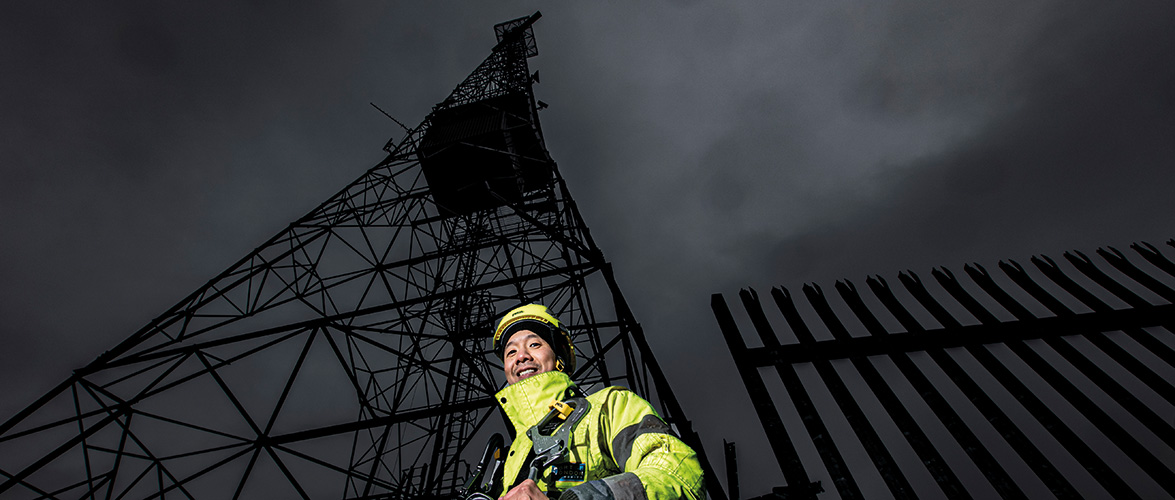
CHIEF FINANCIAL OFFICER'S STATEMENT
Julie Tankard
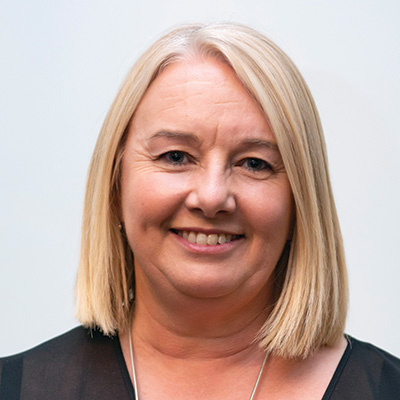 2022 was a positive year for the PLA as port trade grew to exceed our pre-COVID volumes. Financially we managed through a period when the Russian invasion of Ukraine prompted a 40-year inflationary peak, which drove up our cost base.
2022 was a positive year for the PLA as port trade grew to exceed our pre-COVID volumes. Financially we managed through a period when the Russian invasion of Ukraine prompted a 40-year inflationary peak, which drove up our cost base.
Turnover was £78.2 million (2021: £71.4 million) which was a 10% increase on the previous year. Income in all categories increased: vessel and cargo conservancy by 11%; property and investment related income was up 10% and pilotage income rose 7%.
Operating profit was £12.2 million (2021: £8.7 million) which recovered significantly because of the increase in income.
We continue to hold sufficient cash and reserves to service our long-term goals, invest in the business and reflective of our long-term liabilities. Cash plus short term and pooled investments at year end were £32.9m (2021: £36.8m).
Our investments are focused on sustaining and improving our core operational assets, supporting river use and diversifying our income.
Investment in our pilotage operations has been a major focus for more than five years, both in response to immediate demand and our customers’ long-term expansion plans. The financial impact of the pilotage business was a small profit of £0.1m (2021: loss of £0.7m); maintaining an on-demand pilotage service that provides a consistently high level of service availability is an expensive business model.
Our core infrastructure development projects include the proposed new Marine Control Centre, needed to cope with increased port trade and changing vessel technology forecast in Thames Vision 2050. This project will be a major focus for capital spend over the next three years; so far, we have borne the design and professional fees for the development of the planning application for the centre.
We are investing also in our IT strategy, including the server replacement programme, network upgrade, cyber improvements and replacement of many user devices. The re-roofing of our main operational base, Royal Terrace Pier, a listed structure, is underway.
Our Investment Plan has the twin aims of supporting delivery of the Thames Vision goal to increase river use and diversifying our income through river-related property acquisition. The 2022 purchase of Masthouse Terrace Pier, to be developed with dedicated light freight capabilities, alongside its continuing passenger operations, reflects this. Significant spend was made during the year on improving the river walls and strengthening the quayside at previous acquisitions, Plaistow Wharf and Primrose Wharf. With the works complete, Plaistow has now resumed cargo handling and river use. Acquiring and developing these sites takes time, but provides long-term income stream and capital appreciation.
The PLA’s defined benefit pension scheme continues to be a large financial cost to the business, despite no longer being open to new members. Following the latest triennial valuation, the PLA had to increase deficit repair payments and agree a funding plan with the Trustee which would automatically trigger further payments if the funding plan goes off course. In 2022, the PLA paid £7.4 million in deficit repair payments (2021: £4 million). Future service costs of the scheme have increased also, with total contributions from both employer and employee rising to 29.9% (2021: 22.7%), of which the employer is responsible for two-thirds.
During 2022 our pension scheme, like many others, was impacted by the mini budget of 23 September. Subsequently, the value of the pound fell dramatically, and the cost of borrowing increased significantly. As a consequence, companies running liability driven investments made significant cash calls to maintain the hedge on the pension fund.
At the PLA we were able to meet all cash calls and maintain our hedged position through available cash and divesting some liquid assets. Like many schemes, we have since reviewed our pensions investment strategy, with a view to ensuring a higher level of liquidity and reducing the risk profile.
The pension liability, as valued under International Accounting Standard 19, increased to £25.0 million, compared to £11.0 million in 2021. The increase in the pension liability was driven by a change in the discount rate, moving from 2% in 2021 to 4.8% in 2022, reducing the liability on the scheme significantly but being more than offset by the loss suffered on the assets and the minimum funding adjustment.
We hold a number of pooled investments from gilts, equities and credit funds which have historically performed well. After the challenging year for the financial markets, we took a loss on these funds, which moved from £13.8 million to £11.9 million. This loss was booked in the income statement. We will monitor these funds into 2023, but as the investment strategy is long term, we are not expecting to take a reactionary position in response.
The overall outlook for the PLA is positive. We are well placed for increased river activity and demand for our services. Our healthy cash balance will underpin the Investment Plan, as we continue to look to diversify our income, albeit borrowing costs will make that more challenging. High inflation and energy prices are a concern as we go into 2023, as is the geopolitical environment which remains unsettled.
Julie Tankard
Chief Financial Officer
3 May 2023
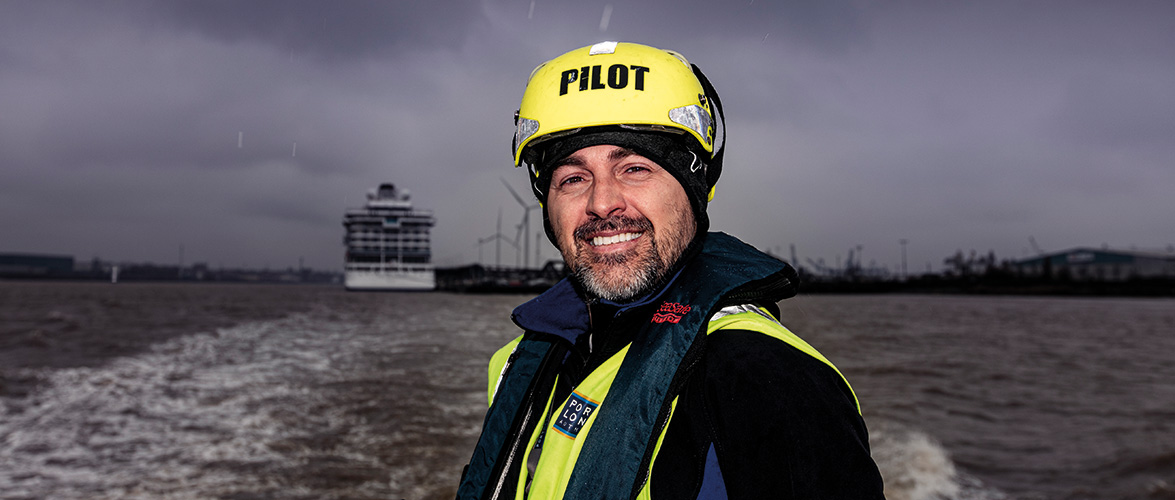
CHIEF HARBOUR MASTER’S STATEMENT
Bob Baker
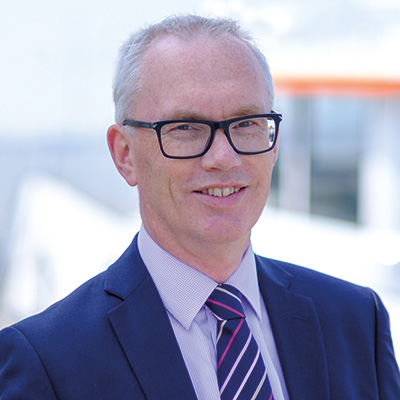 Activity along the river last year was the closest we have seen to pre-pandemic levels. It was consequently pleasing to see safety performance continue in line with prior trends, with just one serious incident, by some margin below the three-year safety plan’s trend target.
Activity along the river last year was the closest we have seen to pre-pandemic levels. It was consequently pleasing to see safety performance continue in line with prior trends, with just one serious incident, by some margin below the three-year safety plan’s trend target.
This positive performance was underpinned by a wider range of activities, through our safety management system, patrols and enforcement action, where appropriate.
To help ensure continued focus on the minor accidents which can lead to more serious incidents in the long term, we focused on the promotion of near miss reporting. Our latest ‘Look out for each other afloat’ campaign ran from summer 2022 onwards.
The safety management system performance was assessed and reported to the Board by the PLA’s designated person, as required by the Port Marine Safety Code.
Through the year we put plans in place for our first Safe Boarding Week, looking to prompt the use of appropriate equipment for embarking and disembarking vessels. The week was successfully delivered in March 2023, with 265 inspections of gangways, ladders from berths, piers and linkspans, along the tidal Thames.
Pilotage demand moderated a little compared to prior years, with 13,699 acts (2021: 14,037), and the service level remaining above 99%.
To keep pace with projected long-term demand, we are continuing to invest in both pilot recruitment and additional equipment for pilots.
Fourteen trainee pilots joined the PLA in the year, two more than we have been able to train in prior years. In addition, we invested more than £300,000 in portable pilot units, for pilots to use guiding the larger vessels into and out of the port.
Safety of navigation is the organisation’s principal undertaking and is set to benefit from further investment to prepare for the projected long-term growth in port trade set out in the Thames Vision. The proposed Marine Control Centre at Gravesend will provide a single hub for overseeing safe operations in the UK’s busiest port and increasingly complex waterway.
Bob Baker
Chief Harbour Master
3 May 2023
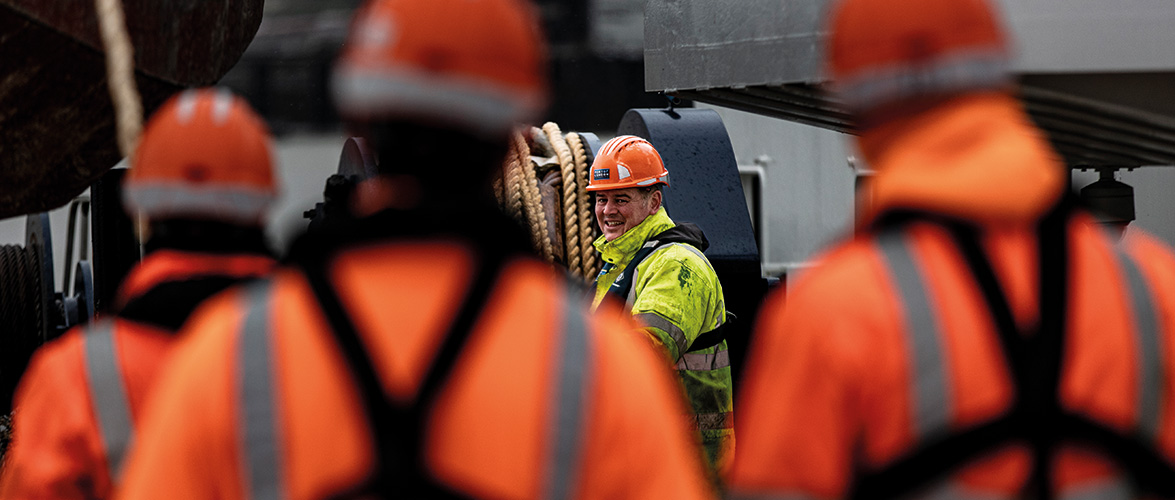
OPPORTUNITIES AND CHALLENGES
This section covers the key opportunities and challenges that the PLA manages and to which we respond. The Governance section of this report provides details of the full array of factors we address through our risk management process.
OPPORTUNITIES
Long-term port trade growth remains a major opportunity for the PLA. The Oxford Economics port trade forecast we commissioned for the review of the Thames Vision sets out a median growth expectation at 72 million tonnes by 2050 (2022: 54.9 million tonnes), with the upper limit around 90 million tonnes.
Short- and medium-term investments and developments underline this growth expectation. Major operators in the port, including DPWorld at London Gateway and Forth Ports at Tilbury, continue to make and plan significant investments in their operations. Other operators, including Stolt, Stema, Tarmac, CEMEX and Hanson are shaping their businesses for the long-term, bringing new vessels into their fleets and developing land side facilities.
Thames Freeport is a further boost to prospects. The lead operators – DP World London Gateway, Forth Ports, Ford Motor Company and the PLA – project that Freeport status will underpin the creation of more than £1 billion of investment in new port infrastructure and 21,000 new direct and indirect jobs on its estate.
The emergence of unprecedented levels of interest in the river for moving light freight is a major opportunity for the PLA.
We are working with logistics companies, their customers and others to turn their aspirations into operational reality.
The Thames Tideway Tunnel, the largest project on the river in central London for over a century, will be completed within the next three years. Once operational, its principal long-term benefit will be a cleaner river. During construction, use of the river underpinned investment in vessels, tugs and barges. The scheme’s contractor requirements embedded higher standards on the river, a legacy for the future.
The expected long-term growth in activity on the river will result in demand for more skilled people. As the nature of vessel technology and river operations changes, existing workers will need to maintain and upgrade their skills. The establishment of the UK’s first Continuing Professional Development programme for inland waterways, developed with the Thames Skills Academy, the Company of Watermen & Lightermen and Thames operators, will help to address this.
The river framework, the Thames Vision 2050, sets a clear path for the development of the river and the PLA. The masterplanning process on which we are now embarked will give the broad scope of ambition spatial interpretation at local level. We expect this greater certainty to underpin investment and development of the river as trading hub, destination and natural haven.
As the UK’s biggest port by tonnage of goods handled and the largest inland waterways for internal freight movements, on the doorstep of the country’s largest concentration of population, there is a major opportunity for the Thames to be central to the development of a decarbonised economy. Operationally, we have a commitment and route to achieve Net Zero by 2040, or earlier. More broadly, our leading role in the Hydrogen Highway project places us at the forefront of development thinking around hydrogen in the marine environment and we will support the development of alternative fuels infrastructure on the Thames.
CHALLENGES
The challenges for the PLA encompass environmental, economic, technological and social factors.
Climate change is a significant issue facing all ports. In our response we will be mitigating the impacts of climate change, such as sea level rise and increasing extreme weather events. In adapting to climate change we will be working with key partners, including the Environment Agency who are looking at long term flood defence management on the river through their TE2100 programme.
We are recruiting actively to meet the increasing service demands of the growing port. In common with many UK employers, we have found recruitment to be increasingly difficult for specific skills and we remain concerned about the availability of quality candidates over the long-term. So far this has not proved to be problematic in the recruitment of trainee pilots, a major priority for the business.
The business is adjusting to technological change that is expected to advance at pace through the development of new propulsion and other ship technologies, for example. Managing safety in this more complex environment could prove increasingly challenging. Our principal response is scoping the development of a new Marine Control Centre at Gravesend, with flexibility designed in to respond to the changing demands of ship automation over the next 30 years.
Our IT systems are benefiting from significant review and upgrade to ensure robust operations. Cyber security is a major focus, with shipping lines and ports targets for IT system attacks. We are further strengthening the security of our systems and educating users as part of our precautions in this area.
Trade patterns and the make-up of cargo passing through the port is expected to change markedly between now and 2050. The import of fossil fuels for use in transport is a major part of port trade and is expected to reduce significantly; lower volumes of low/zero carbon alternatives are expected to replace them. We will pay close attention to the safety needs for transit and handling of any new fuels.
The PLA has an interest in a number of pension schemes, which provide an exposure to the movement in value of stocks, shares and other investment markets. Following the most recent triennial valuation of the main PLA pension scheme a new, more costly recovery plan has been agreed with the trustees. The scheme is very expensive, although the introduction of a new defined contribution scheme in January 2021 for new joiners has mitigated some of the long-term liability.
Demand for our pilotage service remains strong. To continue meeting the ‘on demand’ requirements of our customers, we are investing in new pilot recruitment and supporting infrastructure.
The Tideway scheme has presented a navigational safety challenge linked to the operation of 12 construction sites in and alongside the river. As the construction starts to ramp down, we are managing the continuing high level of consenting and other demands with a dedicated major projects statutory consenting team.
In an increasingly busy port and river, use of the finite space available has to be carefully managed. We work to balance the competing demands from trade, travel and recreation. Developments with potential to encroach on usable river space include new crossings and new or expanded windfarms.
In seeking to develop increased renewable energy generation capacity, the UK windfarm sector is expanding. A busy route for navigation to the UK’s largest port, the Thames estuary is already home to a number of large windfarm developments.
To ensure unimpeded safe navigational access to the port, all windfarm proposals are subject to careful consideration. We work actively on this with scheme developers, shipping lines, service providers and terminal operators who would be affected.
PLA STRATEGY
Thames Vision 2050 is built around three interconnected themes, centred on the role the river plays for people and the environment.
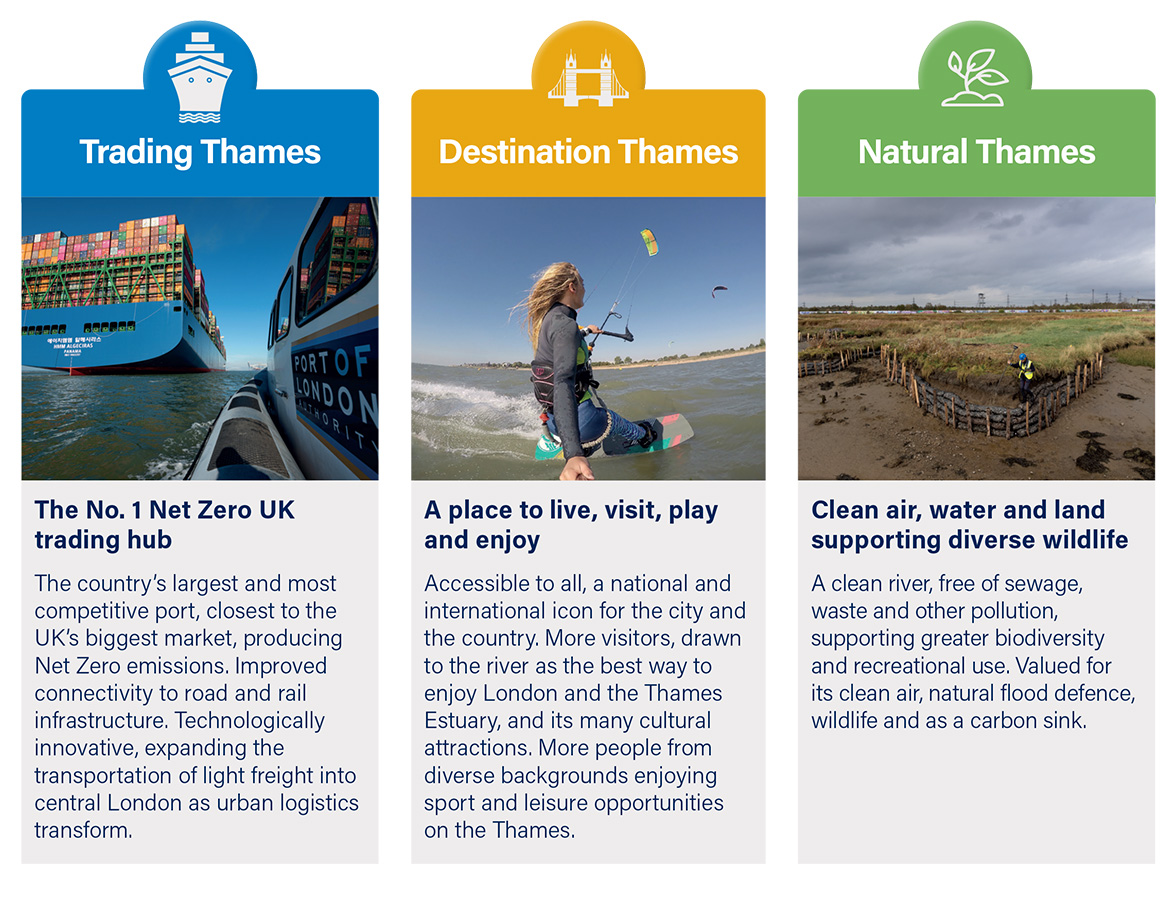
A responsive river
The next 25 to 30 years will see substantial change across the economy and society as we transition to a Net Zero society, and deal with the effects of climate change, alongside other opportunities and challenges. With stakeholders, we have agreed five cross cutting priorities for action:

STAKEHOLDER BENEFITS
As a Trust Port we provide stakeholders with a range of benefits, alongside discharging our specific duties.
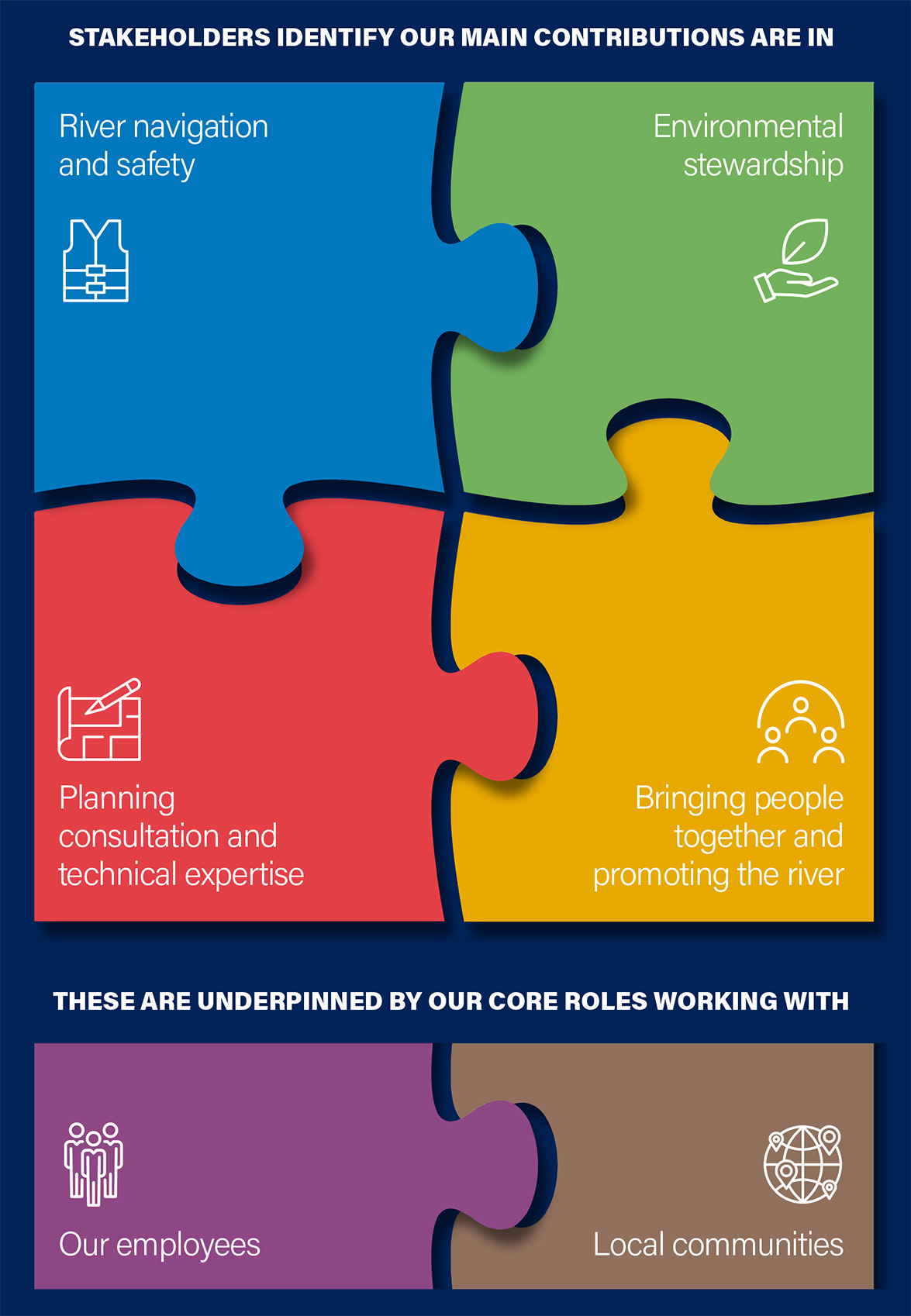
ENGAGING WITH STAKEHOLDERS
As a Trust Port we work closely with our stakeholders in maintaining a safe river, caring for the environment, and promoting use of the Thames.
Department for Transport guidance describes a Trust Port as: ‘a valuable asset presently safeguarded by the existing Board, whose duty it is to hand it on in the same or better condition to succeeding generations. This remains the ultimate responsibility of the Board, and future generations remain the ultimate stakeholder.’
In considering the long-term development of the river, the Board has regard to factors including: long-term consequences; how decisions affect our customers, employees and the wider community; minimising environmental impacts and improving the environment wherever possible; reputational implications; and fairly balancing different stakeholder needs.
In running the PLA, the broad stakeholder groups the Board considers are:
- Customers: river users (including operators of seagoing cargo vessels, inland freight vessels, passenger vessels and recreational users), commercial port operators (including the operators of cargo handling facilities) and others (including our licensees, tenants and those to whom we provide third party services)
- Employees
- Local communities and NGOs
- Government, elected representatives, regulators and local authorities
Board members remain in touch with stakeholders’ views through engagement, studies and visits including:
- Annual employee engagement study
- Annual stakeholder audit
- Annual stakeholder meeting
- Public meetings
- Site visits
- Customer meetings and feedback
The following tables set out the main types of stakeholders, their areas of interest, our engagement channels and how different Board Committees and the Board of Directors address stakeholder interests.
Areas of interest | Engagement channels | Committee/Board Agenda |
Customers | ||
|
|
|
Employees | ||
|
|
|
Local communities and NGOs | ||
|
|
|
Government, elected representatives, regulators and local authorities | ||
|
|
|
The table below sets out four key Board decisions in 2022 and the manner in which stakeholder views were drawn into the decision-making process. | ||||
Board decisions and their impact on stakeholders | ||||
Decision | How we took stakeholders into account | Long-term implications | ||
Thames Vision 2050 development |
|
| ||
Light freight |
|
| ||
Masterplanning |
|
| ||
Creation of a single Marine Control Centre |
|
| ||
STREAMLINED ENERGY AND CARBON REPORTING (SECR)
We will achieve our net zero target through a combination of activities including:
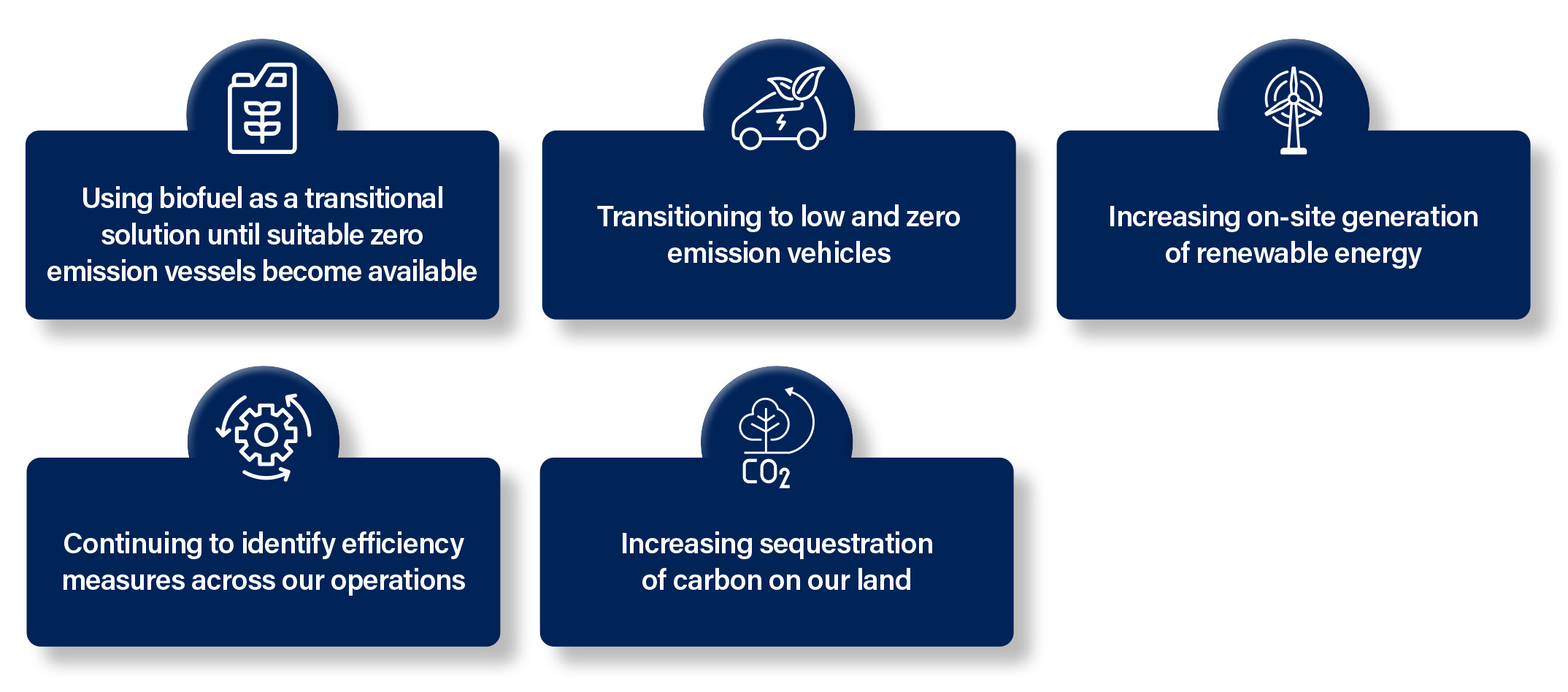
The PLA has committed to be net zero by 2040 at the latest. Our main emissions sources have been mapped and plans are in place to reduce emissions.
PROGRESS AGAINST TARGET
We made substantial progress on our journey towards net zero in 2022, reducing our Scope 1&2 emissions by 52% from our baseline year of 2014.
This was achieved principally by transitioning our vessel fleet to sustainable biofuels (Hydrotreated Vegetable
Oil or HVO from sustainable sources), an interim measure to reduce our emissions, while we work with partners and suppliers on electrification.
We continue to invest in energy efficiency measures. Our marine operations site had all external lights switched from halogen to energy efficient LEDs at the end of 2021; total electricity use on site has fallen by 13% compared to last year. Renewable installations are being investigated on buildings, remote and marine assets for future applications.
We continue to purchase electricity from a 100% renewable energy tariff, backed by Renewable Energy Guarantees of Origin (REGOs), which the supplier classifies as zero emission. Our solar PV panels at London River House continue to provide renewable energy.
NEXT STEPS
In 2023 we will be refining and expanding our approach to Scope 3 (value chain) emissions reporting and reduction. We are currently reporting on contracted taxi mileage, waste disposal, water consumption, electricity transmission and distribution, and expensed business mileage.
In 2023-24 we will work on understanding and reducing emissions associated with major capital projects, as well as our supply chain more generally. At the same time, we will continue to work with partners across the sector to promote innovation around zero-emissions vessels and explore opportunities to strengthen shore power potential.
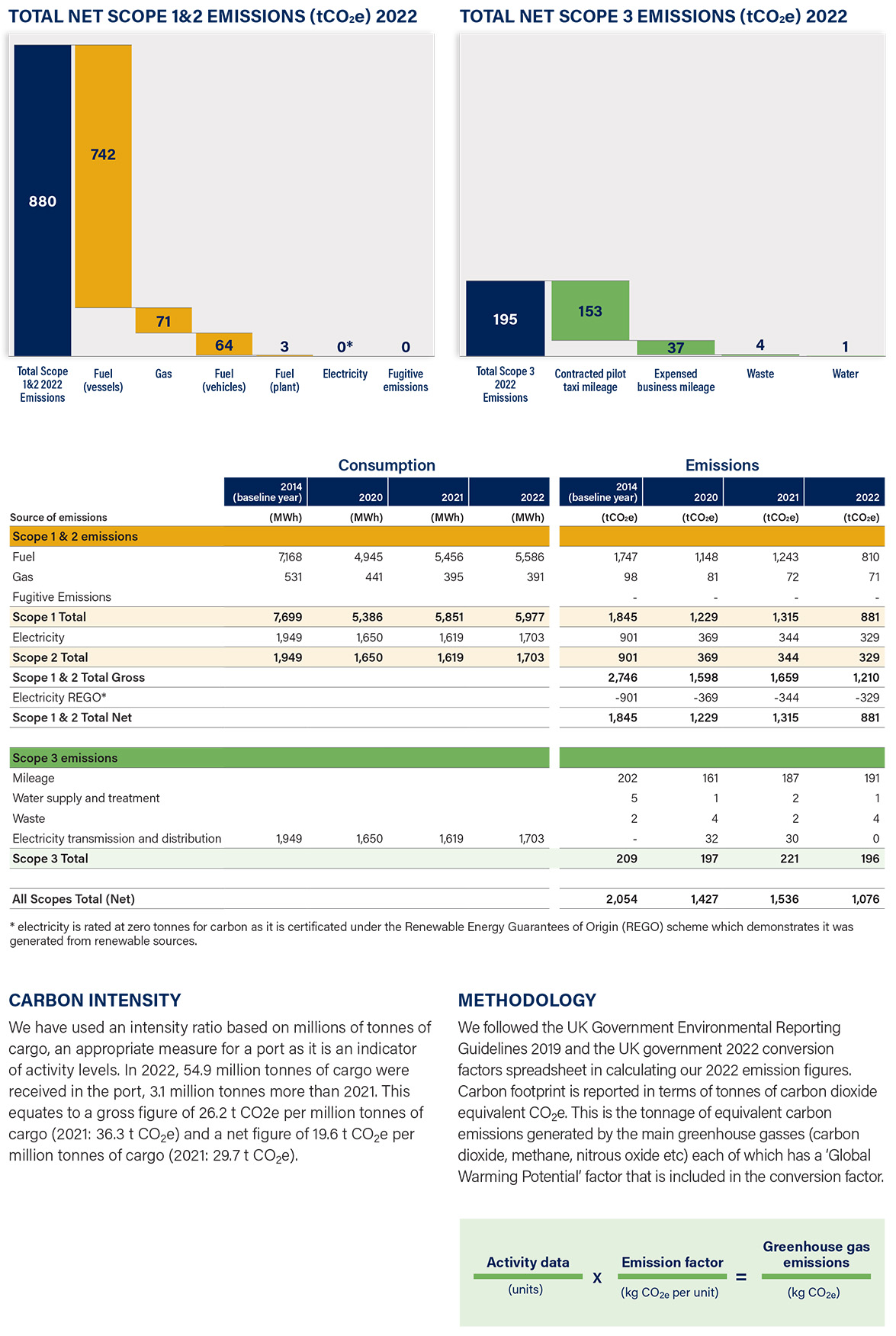
PERFORMANCE
RIVER USE 2022
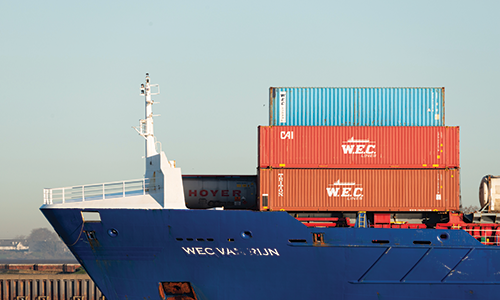 PORT TRADETrade through the Port of London reached its highest level in more than two decades last year, with 54.9 million tonnes handled. Throughput was up by 6%, from the 51.8 million tonnes handled in 2021. Almost half the trade was in containers and unitised cargo, which was by up 4% to 24.4 million tonnes. London Gateway handled more than two million TEUs for the first time, consolidating its position as Britain’s second biggest container terminal. Building materials volumes fell by 5%, to 12.4 million tonnes as construction slowed. The largest increase was in oil products, up by 27% to 11.7 million tonnes as travel returned to more normal levels, post pandemic lockdowns. Long-term growth in port trade is expected, underpinned by investment by terminal operators. Work is underway at DP World London Gateway, on the £300 million plus development of Berth 4. At the Port of Tilbury, 40 new career positions were created as a result of new business growth working with a global brand in fast moving consumer goods and work continued on new silos and automated storage, consolidating the port’s position as the UK’s largest import and export grain handling facility. Stolthaven’s latest development project at Dagenham is focused on replacement of the jetty and installation of new, higher capacity lines. CLdN, the most frequent operator of services from the Thames to the near continent, is adding further services to increase capacity and trialling new environmentally focused vessel technology. Rotor sails have been fitted to vessel, Delphine. In the building materials trade, an important cargo on the Thames, 2022 saw the first call of new dredger, Hanson Thames. The vessel is part of wider Hanson investment in its Thames operations, at Dagenham and Victoria Deep Wharf. Thames Freeport is engaged in active marketing which partners – Forth Ports, London Gateway and Ford Motor Company – expect to underpin ongoing growth. 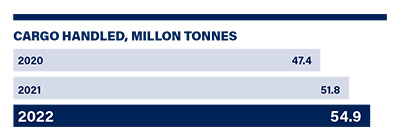 | 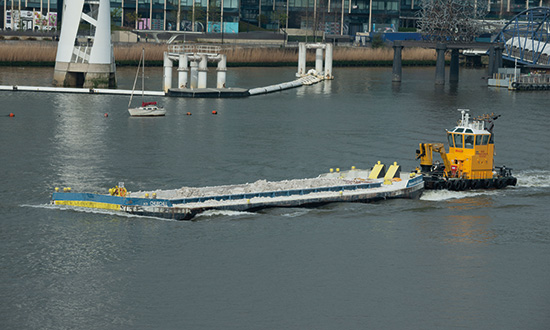 INLAND WATERWAYS FREIGHTInland freight movements between terminals on the Thames fell to 2.8 million tonnes, in 2022, down from 3.7 million tonnes in 2021. Volumes declined due to the combined effects of Tideway related traffic slowing and a reduction in the movement of aggregates for construction. Waste volumes moved increased slightly. Traditional bulk cargoes on the river include waste and construction products. An emerging ‘light freight' sector is developing on the river too, around the movement of small packets and parcels. The number of packages moved on the river in 2022 was 87,500 up from 52,300 in 2021. The longest established river user, Cory, is taking forward plans for Riverside 2, a second Energy from Waste facility at Belvedere. This is allied to an industry-leading decarbonisation project located at the site which has potential to deliver 1.4 million tonnes of CO2 savings per annum by 2030. At the same time, the company’s fleet renewal programme for both tugs and barges continues. The Tideway project developed at pace through the year. The tunnelling phase concluded in Spring 2022, when a boring machine broke through into the shaft at Chambers Wharf. The tunnel is projected to be operational by 2025. So far, the project’s use of the river has saved more than 650,000 heavy goods vehicle trips and around 27,000 tonnes of carbon dioxide emissions. The £2.6 million programme of essential improvement works at Plaistow and Royal Primrose wharves in Newham was completed. The wharves are now ready for river use again, with Keltbray operational on Plaistow Wharf. As part of its investment plan, backing river use, the PLA has spent £20 million in site acquisition and improvements readying them for operations. Royal Primrose Wharf is being marketed to operators. The PLA Investment Strategy is key to the development of light freight potential on the river too. Dartford International Terminal, acquired by the PLA in 2021, has been the downriver base for several light freight trials, the latest with Cross River Partnership (CRP) and GPS Marine, making multiple drop deliveries of stationery and cleaning products, ending at Woods Quay, next to Waterloo Bridge. Further PLA investment was made acquiring Masthouse Terrace Pier from Canal & River Trust for development as the first pier in the capital with space dedicated to the transportation by river of parcels and other light freight, alongside existing passenger operations. The Isle of Dogs location offers excellent connections to nearby Canary Wharf. The development of light freight on the Thames is being taken forward with partners, including Cross River Partnership and the Thames Estuary Growth Board.
 | |
PASSENGER TRAVELThe recovery of passenger operations on the Thames continued in 2022, with the number of trips almost doubling to 8.3 million, from 4.5 million trips in 2021. The new Barking Riverside Pier opened in Spring 2022 as the site developers realise the potential of their Thames-side site. This is the latest pier in the network, extending it further east, and has already welcomed more than 100,000 passengers. Uber Boat by Thames Clippers offered school holiday trial services from Gravesend into the capital, which continue to prove popular. A number of operators are adopting clean diesel for their services and exploring other cleaner propulsion options. Thames Clippers is expected to take delivery of the UK’s first hybrid high speed passenger ferries this year. Wood’s Silverfleet’s new base, Woods Quay, won the London West RIBA Regional Award 2022.  |
SPORT AND RECREATION2022 was an important year for Thames sport and recreation, as the Boat Race returned to the river for the first time since the pandemic and the number of club events and competitions returned to normal. The Head of the River races also returned, with some 17,000 competitors taking to the water. The Great River Race was set to return for the first time since 2019. Following the passing of Her Majesty the Queen, the race was replaced with a memorial row in Her Majesty’s honour. With many people who enjoy cruising on the river returning to the Thames after some two years enforced absence, our 2022 pre-season briefing for members of the Tidal Thames Navigators Club was held at the Museum of London Docklands with presentations from the Metropolitan Police Marine Unit, the RNLI, and the PLA. Active Thames made a strong contribution, its annual grant programme seeing £150,000 contributed to 26 successful applicants; the value of grants offered increased from £90,000 in 2021. Active Thames encourages participation in watersports and walking, and the grants focused on groups identified as less likely to be active such as lower socio-economic groups and people with disabilities. Among those benefiting in 2022 were SilverFit, which aims to promote happier, healthier aging through physical activity, and the South London Scouts, which works with 14-25 year olds and ensures that those from lower socio-economic backgrounds are able to take part in paddling and sailing.  |
River navigation and safety
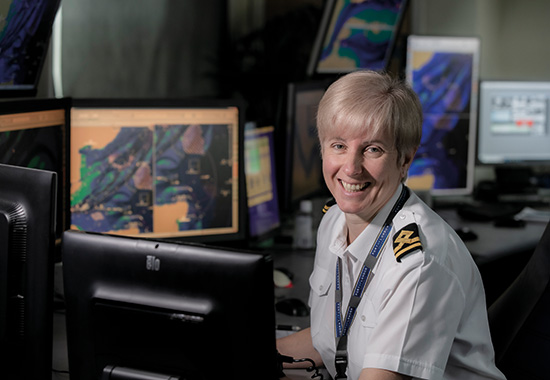 Our main responsibility is maintaining Thames river channels and managing navigation along 95 miles of the tidal Thames, downstream of Teddington Lock.
Our main responsibility is maintaining Thames river channels and managing navigation along 95 miles of the tidal Thames, downstream of Teddington Lock.
We put measures in place to assist safe navigation, including navigation lights and buoys, hydrographic services, pilotage and Vessel Traffic Services control centres at Woolwich and Gravesend, overseeing safe navigation over 400 square miles.
Highlights:
- Marine Safety Plan 2021 – 2024 on target for 10% reduction in serious navigational incidents.
- Significant increase in Near Miss reporting – 88 Near Miss Reports, 80% up on 2021.
- Fourteen pilot trainees joined as part of our continuing investment in the service.
- Sea pilotage service level 98.5% of all ship calls served as booked (2021: 99.1%).
- More than £300,000 was spent on new portable pilotage units, for use on the larger vessels entering the port.
- Continuous professional development (CPD) is set to become mandatory on the Thames from 2024.
- New, modern safety regulations for older Class V passenger vessels approved by Government.
Environmental stewardship
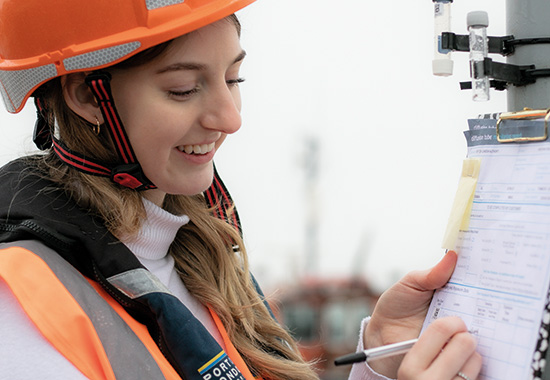 We conserve and enhance a range of diverse, thriving habitats for many different species of fish, birds, seals and other wildlife alongside the thriving commercial port and river activities.
We conserve and enhance a range of diverse, thriving habitats for many different species of fish, birds, seals and other wildlife alongside the thriving commercial port and river activities.
Our environment team works across an environmental agenda encompassing air quality, carbon emissions, habitats and water quality.
Highlights:
- Carbon generation fell to 1,076 CO2 equivalent tonnes (2021: 1,537 CO2 equivalent tonnes).
- Air quality monitors re-located to capture a river-wide perspective, after a period of long-term monitoring at Greenwich to assess the air quality impacts of berthing cruise ships.
- PLA-led Hydrogen Highway project continued, assessing scope to establish a national hydrogen highway network, integrating land, sea and port.
- 274 commercially trading vessels calling on the Thames qualified for the ‘green’ discount by achieving the required Environmental Ships Index standard; benefitting vessels collectively visited the port 1,070 times.
- Towage operator, Svitzer, named as second Gold member of the Thames Green Scheme, established to encourage inland vessel operators adoption of more environmentally friendly practices.
- All five Environment Fund projects tackling litter and invasive species were completed, positively impacting on the environment and increasing community awareness of environmental issues.
Planning consultation and technical expertise
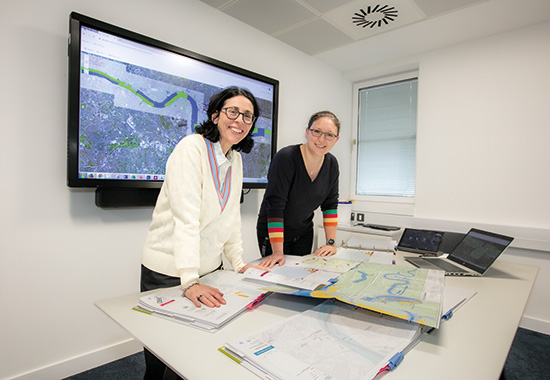 Our planning and technical expertise is at the heart of our work to promote and facilitate greater use of the river.
Our planning and technical expertise is at the heart of our work to promote and facilitate greater use of the river.
This expertise is widely drawn on as we make sure wharves are maintained and reactivated for port use; provide expert advice to people looking to use the river, whether for trade, travel or leisure; and oversee major events on the Thames.
Highlights:
- Work started on the Thames Masterplan, a major Thames Vision 2050 commitment which will deliver certainty and clarity on opportunity for river users, regulators and local authorities.
- Development of plans for the Thames' first new boatyard in over a century continued to advance, with a prospective tenant secured.
- Applications for consent linked to major projects covered by Development Consent Orders (DCO) and other regimes, included the Thames Tideway Tunnel, the Silvertown Tunnel and DP World London Gateway’s Berth 4.
- Two further light freight trials supported, with PLA jetties playing a key role.
- Further work on our Harbour Revision Order (HRO) with stakeholders and the Marine Management Organisation; we are seeking the HRO to modernise the Port of London Act, under which we operate.
- Issue of Thames foreshore permits suspended, after consultation with our partners at the Museum of London and English Heritage, in order to protect the foreshore, imperilled by the increasing level of searching.
Bringing people together and promoting the river
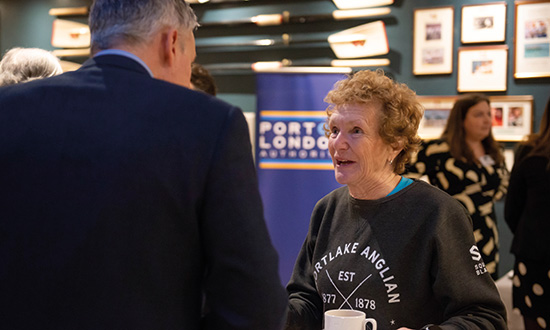 The river is a hub of activity, whether for trade, travel and sports, and a catalyst for investment.
The river is a hub of activity, whether for trade, travel and sports, and a catalyst for investment.
At the PLA we are uniquely placed to act as the river’s advocate and convener for those interested in its use and development. This role sees us continually initiating new partnerships, working to develop established ones and showcasing the river in its broadest sense.
Highlights:
- The final consultation on Thames Vision 2050 was completed, feedback taken in and the document launched at City Hall in September.
- More than 25,000 people visited London: Port City, the major six-month exhibition we supported at the Museum of London Docklands.
- Port Infrastructure Group met three times, highlighting key projects for the ongoing development of the river.
- 120 people joined our sixth Environment Conference, which focused on climate adaptation, with speakers from the Wildlife Trusts, RPSB, British Ports Association and Lloyd’s Register Maritime Decarbonisation Hub.
- The second year of the Active Thames grant programme saw more than £150,000 worth of support for 24 organisations, promoting access to the river across communities.
PLA in the community
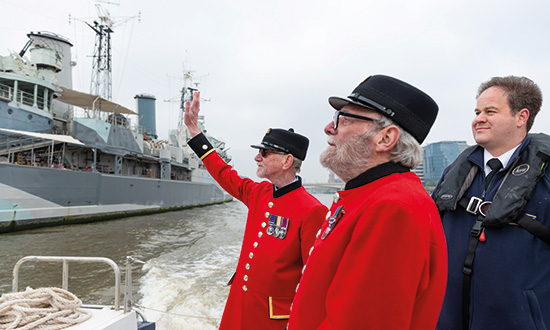 As a Trust Port, we look after the river for the benefit of many stakeholders and, ultimately, future generations.
As a Trust Port, we look after the river for the benefit of many stakeholders and, ultimately, future generations.
We are active members of the river and wider communities, generating benefits well beyond those of our core operations. Activity on the river generates Gross Value Added of more than £6 billion annually and supports in excess of 140,000 jobs across port and other operations, tourism and recreation.
Highlights:
- Total value of stakeholder benefit for 2022 totalled £48.9 million in 2022 (2021: £46.1 million).
- More than £300,000 contributed in support for activities, projects and partnerships that directly support charitable and stakeholder goals.
- Thames Explorer Trust (TET) schools outreach reached over 5,000 school children, on 58 separate school visits; teachers consistently rated the sessions as excellent, specifically referring to the coverage of Key Stage 2 National Curriculum objectives in Geography.
- One off donation of £12,000 to support Tilbury Seafarers Centre with installing a playing surface in the centre’s basketball court; the surface had fallen into disrepair during COVID lockdowns.
- PLA supported Thames Festival Trust providing admin support essential to delivery of the Reflections tribute to Her Majesty the Queen. The event raised more than £26,000 towards the construction of the new RNLI lifeboat station at Waterloo Bridge.
PLA people
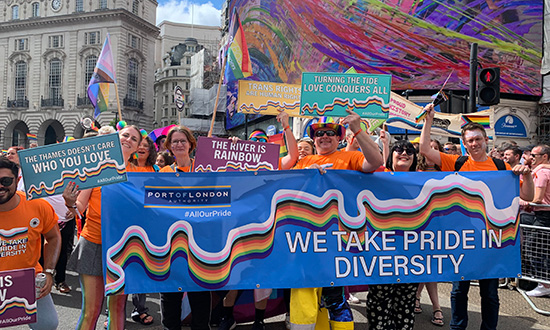 The PLA team of more than 400 people provides a rare blend of seafaring and marine expertise, complemented by specialist electrical and marine engineers, planners, civil engineers, hydrographers, environmental and many other experts.
The PLA team of more than 400 people provides a rare blend of seafaring and marine expertise, complemented by specialist electrical and marine engineers, planners, civil engineers, hydrographers, environmental and many other experts.
In combination this group supports the 24-hour-a-day operations in the UK’s largest port and busiest inland waterway. They work closely with myriad stakeholders to support diverse uses of the river.
Highlights:
- Comprehensive Health, Safety & Wellbeing refresh completed: strategy created by a cross company team.
- 64 new joiners welcomed to the business, including 14 as trainee pilots.
- PLA received Department of Work & Pensions southeast employer ‘above and beyond’ award for work on the Kickstart programme.
- Two new apprentices joined to undertake Boatmasters qualifications: two upskillers are working through Level 4 engineering qualifications.
- In the annual JobCrowd survey, PLA ranked overall 25th in the top 50 UK employers, and 18th overall for graduates.
- Macmillan coffee morning fundraising supported, and monies raised matched by the PLA.
- Thames Vision 2050 engagement sessions held within the business, engaging employees in the river development strategy.
STAKEHOLDER BENEFITS
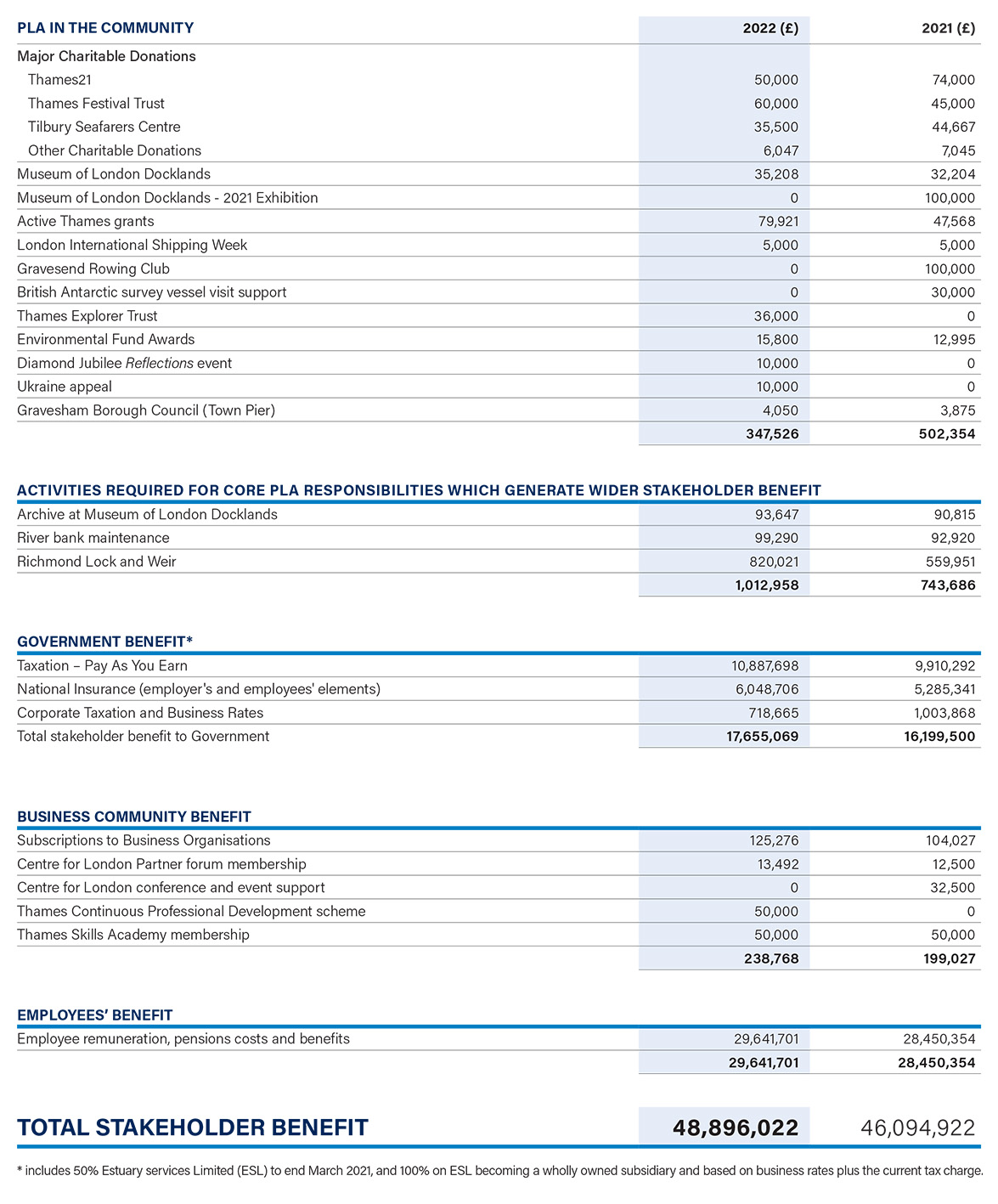
PLA ACTIVITY INDICATORS
As at 31 December 2022
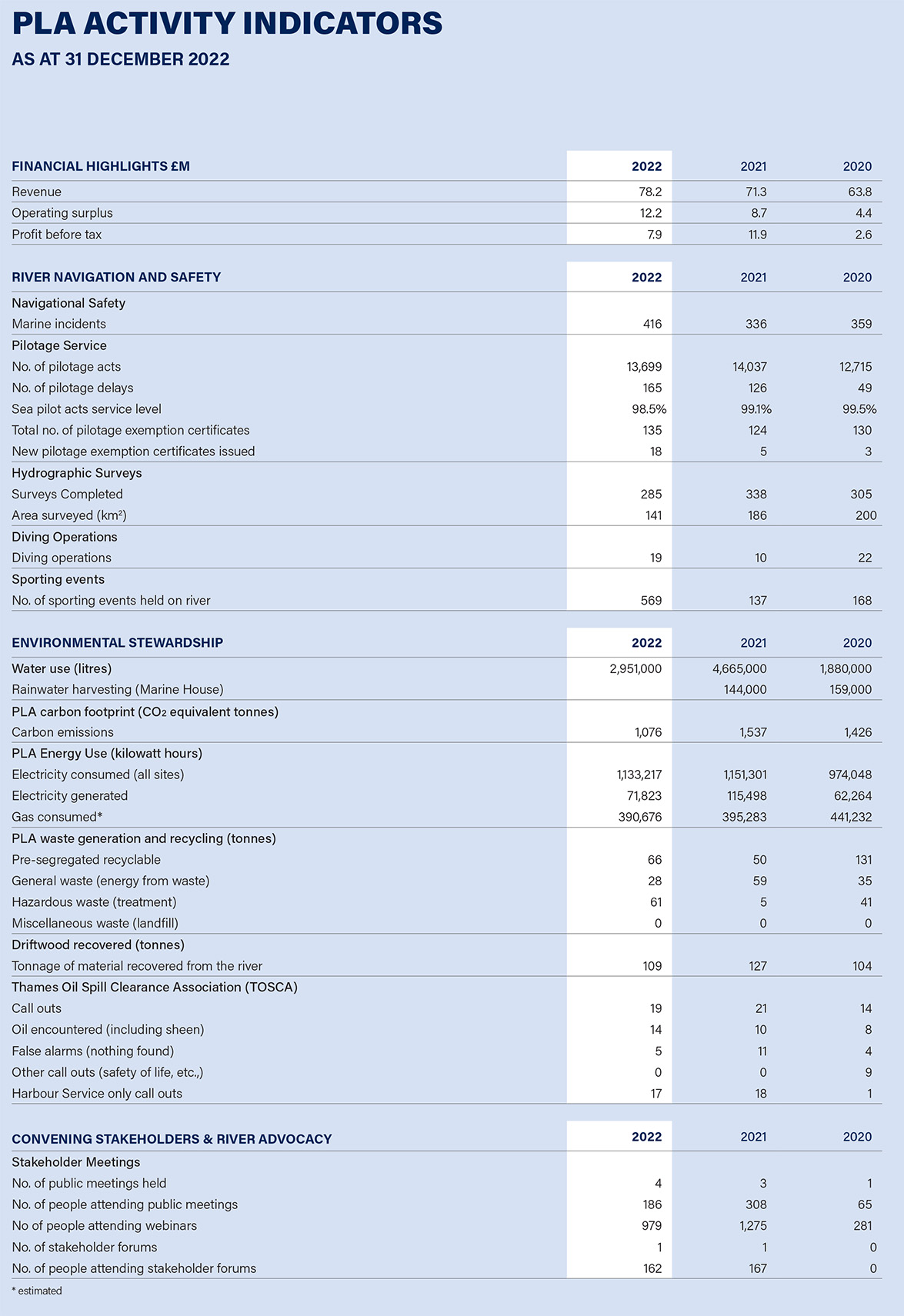
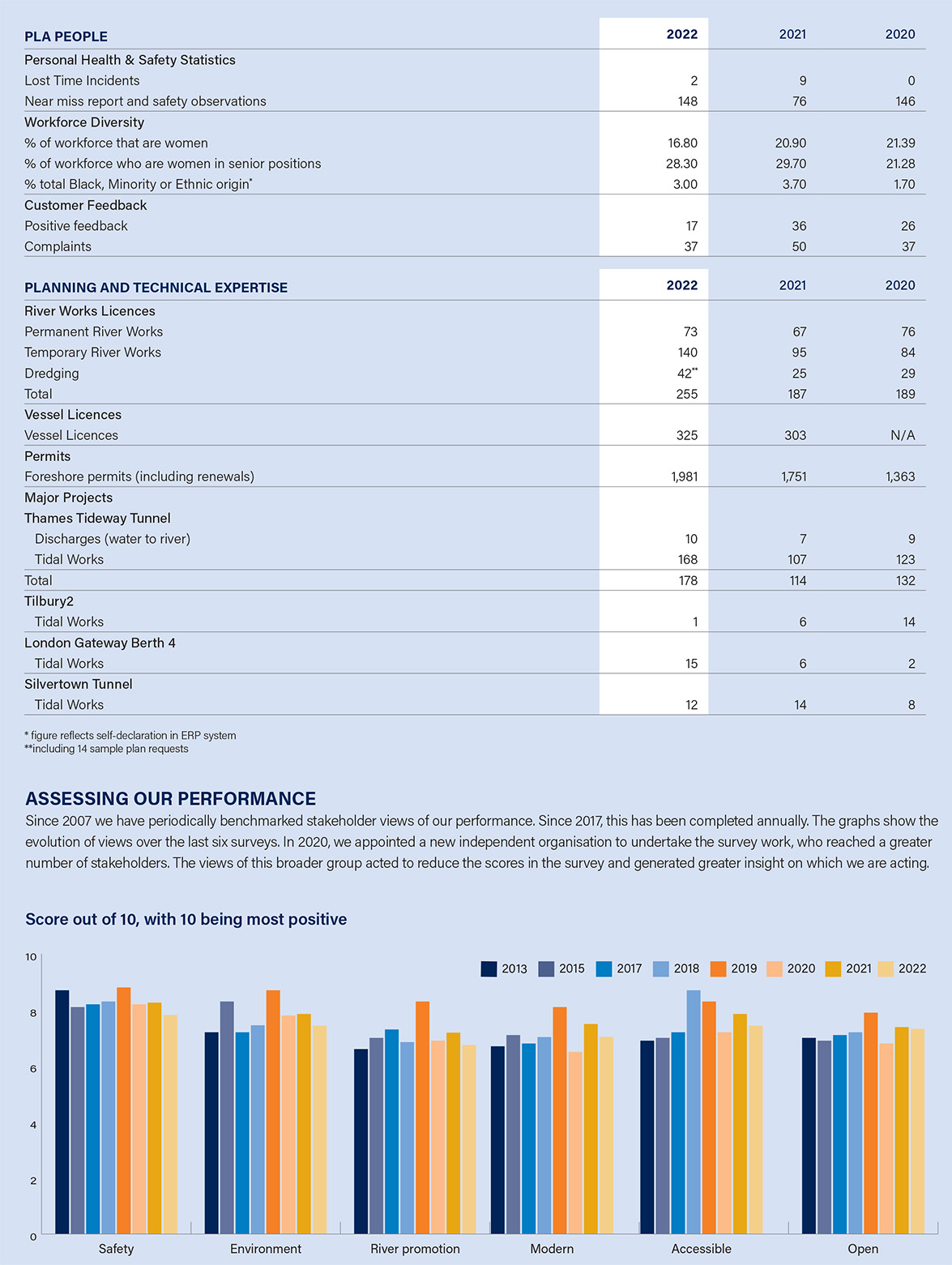
PORT TRADE STATISTICS
As at 31 December 2022
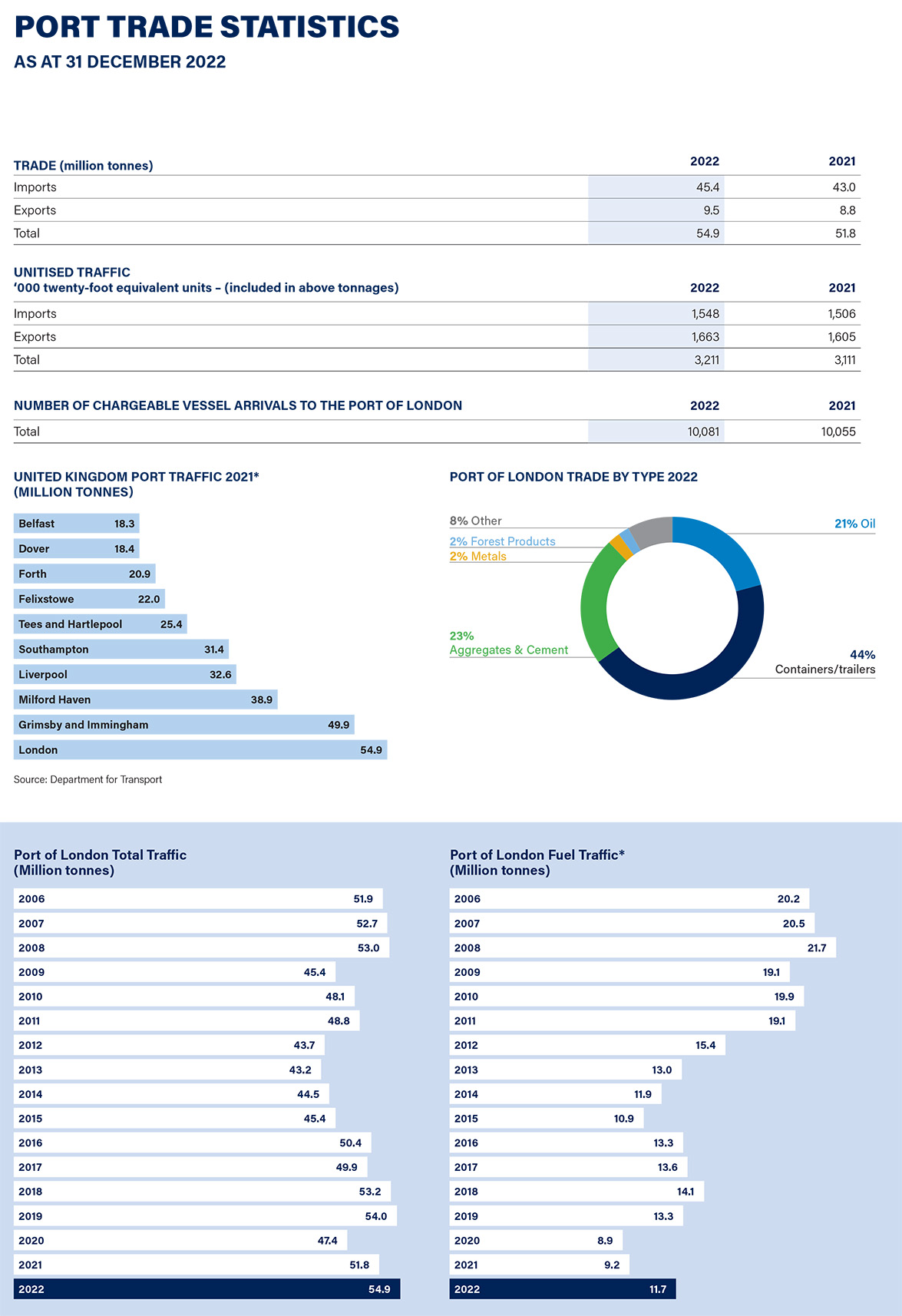
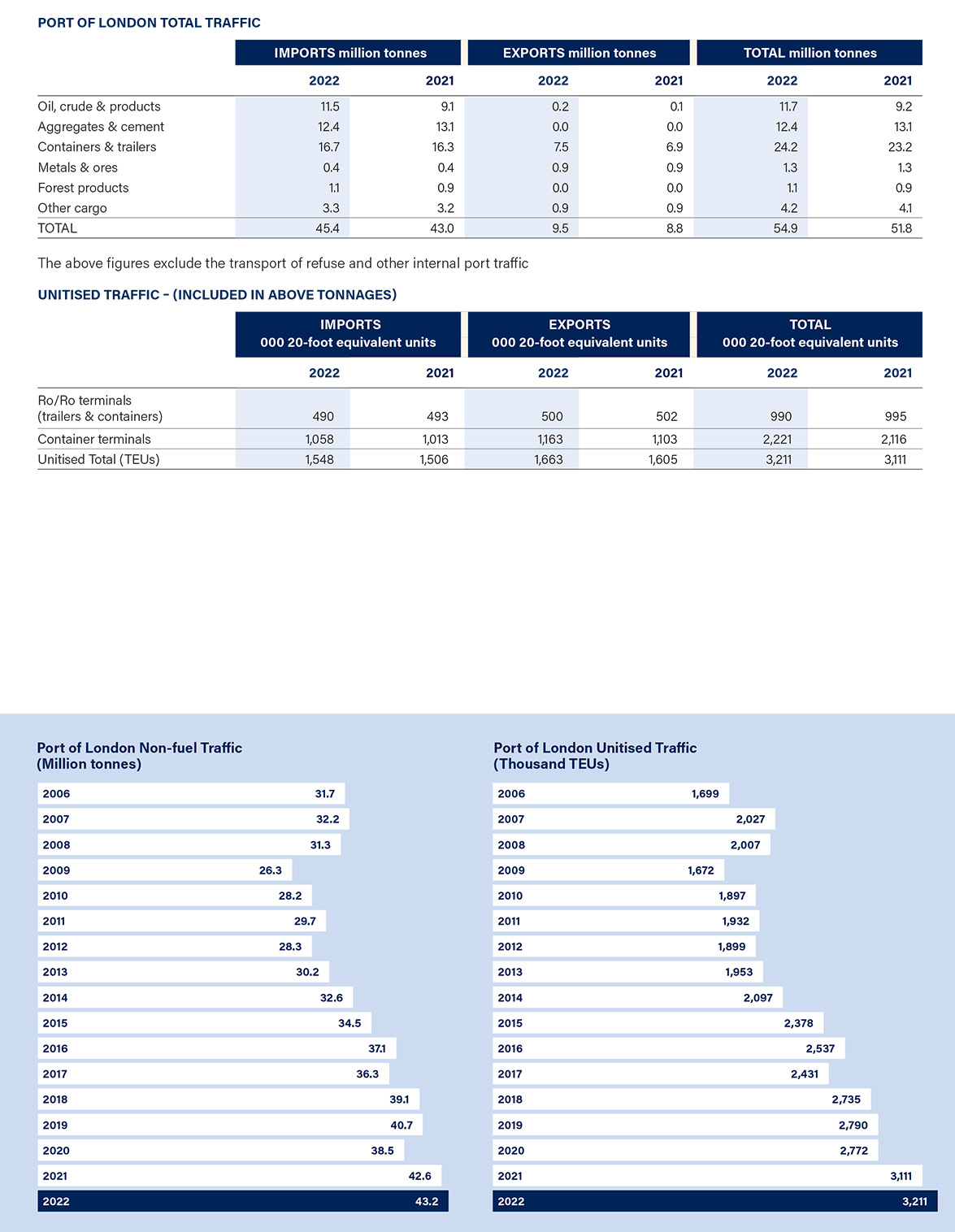
REVIEW OF PRINCIPAL RISKS
This statement captures the collective view of the PLA Board and Executive Committee of the principal risks that the business works to manage.
The key risks spread broadly, across safety, operational, economic aspects, cyber security, pandemic and climate change. Reputational risk is not given a separate listing; it is inherent in failing adequately to deal with the key risks identified here.
SAFETY
Numerous mitigation systems are in place on the river, including an effective navigational Safety Management System (SMS), risk assessment/hazard reviews, Vessel Traffic Services (VTS), pilotage, hydrography, Passenger Boat Code of Practice, Automatic Identification System (AIS), RNLI and London Coastguard, special signal lights and speed control byelaws. The PLA also hosts safety orientated initiatives, such as seminars and works closely with security services.
In the context of growing volumes of river traffic, the continued trading of historic passenger boats, with the risk of significant loss of loss of life if one of these vessels was involved in a collision and foundered, has been a major concern. Government approval of Maritime & Coastguard Agency (MCA) technical requirements for older Domestic Passenger Vessels, more comparable with modern regulations, is very welcome. We are publicising the requirements of the new Regulations before they come into force in late 2024.
Personal Health & Safety is a core value of the business, managed through personal responsibility, our Golden Rules – Care, Challenge and Comply – and our safety management system. During 2022 we updated all risk assessments and implemented training for key personnel.
OPERATIONAL
The most significant operational risk to the business would be the closure or partial closure of the port, significantly disrupting or halting operations and trade. There are several possible causes including, but not limited, to:
- collision;
- grounding;
- foundering;
- deliberate terrorist / pressure group action; and
- significant cyber security incident.
Mitigations include effective navigational SMS, risk assessment/hazard review, VTS, pilotage, and hydrography. Historically, we have responded effectively to clearing navigational channels, if engaged to do so; our Marine Services team and the vessel London Titan are key to this capability. We also participate in the Thames Security Forum and resilience groups.
ECONOMIC
A fundamental shift in the micro or macro financial environment in which we operate has the greatest potential to impact the Port of London in general, and our finances in particular. This includes changes in trade such as business cessation of a major customer or change in the consumer market, through to national or international economic factors such as a change in global trading patterns, or the impact of climate control.
The global economy continues to adjust to the impacts of the Russian invasion of Ukraine, which started in Spring 2022. These include trade sanctions, with inflation rising rapidly as energy and other commodity prices increase. For the UK, reliance on Russian oil products, particularly diesel, is expected to result in further supply tightening in 2023.
This is a fundamental change in economic conditions, after more than a decade of low inflation and low interest rates, rising costs along with Government policy to aid recovery from COVID-19 has created increased taxation for businesses.
Debt management protocols are in place and international exposure is minimised as far as is possible. Five-year business plans, as well as an annual forecast and budget exercise, are undertaken.
FINANCIAL
UK economic policy has the potential to reduce the financial performance of the PLA as the country enters recession in 2023. The port’s mix of cargoes and diversity of income streams should help to cushion any impacts. We have agile financial plans to adjust our cost base swiftly, and customer communications to help anticipate significant change in sufficient time.
There continues to be a deficit on an actuarial basis on the PLA Pension Fund of £49 million. Updated actuarial assumptions have reduced this deficit; as interest rates rise, liabilities have fallen. We completed the triennial valuation of the scheme during 2022 and have increased the employer deficit repair payments to the satisfaction of the Trustees and employer and provided further contingency in the form of a negative pledge on an asset. The Defined Contribution scheme launched in 2021 has replaced the Defined Benefit scheme for new employees; the Defined Benefit scheme remains open to future accrual and this continues to be a financial liability for the PLA.
The PLA pension scheme had a proportion of its assets in liquidity driven investments (LDIs); the abortive economic plans announced in the UK September 2022 fiscal event created great volatility in the gilts markets which caused a significant cash call on the LDI’s. We had sufficient cash to meet the demands and maintained our hedged position throughout this volatile period. Following this, the pension trustees will be re-evaluating the pension investment strategy to ensure it is fit for purpose.
The Pilots National Pension Fund, a multi-employer scheme, also has a substantial deficit in which the PLA has a share, in the region of 6.8%.
It is a long-term open-ended industry-wide liability over which individual employers have little influence. An industry-wide repair plan is in place which, in common with many ports, is funded by way of a levy on pilotage charges.
We are working with industry bodies and stakeholders to understand the impact of the Seafarers Wages Bill, which will be enacted during 2023. Further guidance and detail on tariffs will be studied closely, to understand the practicalities of enforcement, which will be challenging.
SIGNIFICANT CYBER SECURITY INCIDENT
All businesses face the possibility of a successful cyber security breach. Threats vary in complexity and sophistication and can potentially negatively impact organisations of all sizes. We deploy a range of industry-standard security products, both internally and on our network perimeters. Formal security and IT ‘conditions of use’ policies are established, which define security standards and acceptable use.
Office-based staff receive security awareness training and guidance on detecting ‘phishing’ and other malicious emails, and we continue to enhance data governance processes including formalised data retention and classification policies. We continued to increase our technical cyber security measures in 2022 through both hardware and software upgrades.
CLIMATE CHANGE
Climate change is one of the principal risks to which we have to respond. As a port handling more than 10 million tonnes of cargo a year, we voluntarily complete and submit Climate Change Adaptation Reports to Defra, as required under the Climate Change Act 2011.
In responding to climate change, the UK Government has made a legally binding commitment to achieving a Net Zero Carbon economy by 2050. This will result in wholesale change across the economy, and the ports that serve it.
For the PLA major changes that are likely, or potentially likely, to result from this transition include: the long-term switch from oil related cargoes to other forms of energy (currently representing around a quarter of port trade and a major source of income); development of new cargoes; existing vessels’ propulsion systems becoming obsolete; need to adopt new technologies; dealing with unforeseen legislative changes; and managing the impact of extreme weather on the business.
In managing this risk, we are implementing a detailed plan to become a Net Zero organisation by 2040. As an immediate measure, we are replacing the fuel in our vessels with bio-fuel, a change that requires few infrastructure adjustments. We are taking further steps to improve the energy efficiency of our buildings in planned refurbishment programmes and will be developing a detailed plan in 2023. The long-term view of the port, Thames Vision 2050 incorporates themes of decarbonisation, patterns of resilience and developments in vessel autonomy. Oxford Economics produced a forecast for cargo flows into the Port of London, assuming various decarbonisation scenarios, to inform our long-term planning.
PANDEMIC
The outbreak of the coronavirus demonstrated the potential impact of pandemics on the global economy as a whole and operational resilience within transport and logistics. We demonstrated our operational and financial ability to respond to pandemic through 2020 and 2021.
LONG-TERM VIABILITY STATEMENT
The Board has assessed the viability of the company’s business plan over a three-year period in detail, taking account of the company’s current position and potential impact of the principal risks documented in the corporate risk register.
The Board has a reasonable expectation that the company will be able to continue in operation and meet its liabilities as they fall due over the period to December 2025.
In making this statement, the Board has considered the resilience of the company, taking account of its current position, the principal risks facing the business in severe, but realistic scenarios and the effectiveness of any mitigating actions. This assessment has considered the potential impacts of these risks on the business model, future performance, solvency and liquidity over the period.
GOVERNANCE
Governance information for the year ended 31 December 2022 are available in PDF format here.
FINANCIAL STATEMENTS
Financial data for the year ended 31 December 2022 are available in PDF format here.
Annual Reports
- Annual Report and Accounts 2024
- Annual Report and Accounts 2023
- Annual Report and Accounts 2022
- Annual Report and Accounts 2021
- Annual Report and Accounts 2020
- Annual Report and Accounts 2019
- Annual Report and Accounts 2018
- Annual Report and Accounts 2017
- Annual Report and Accounts 2016
- Annual Report and Accounts 2015
- Annual Report and Accounts 2014
History in the making
Fiona Keates
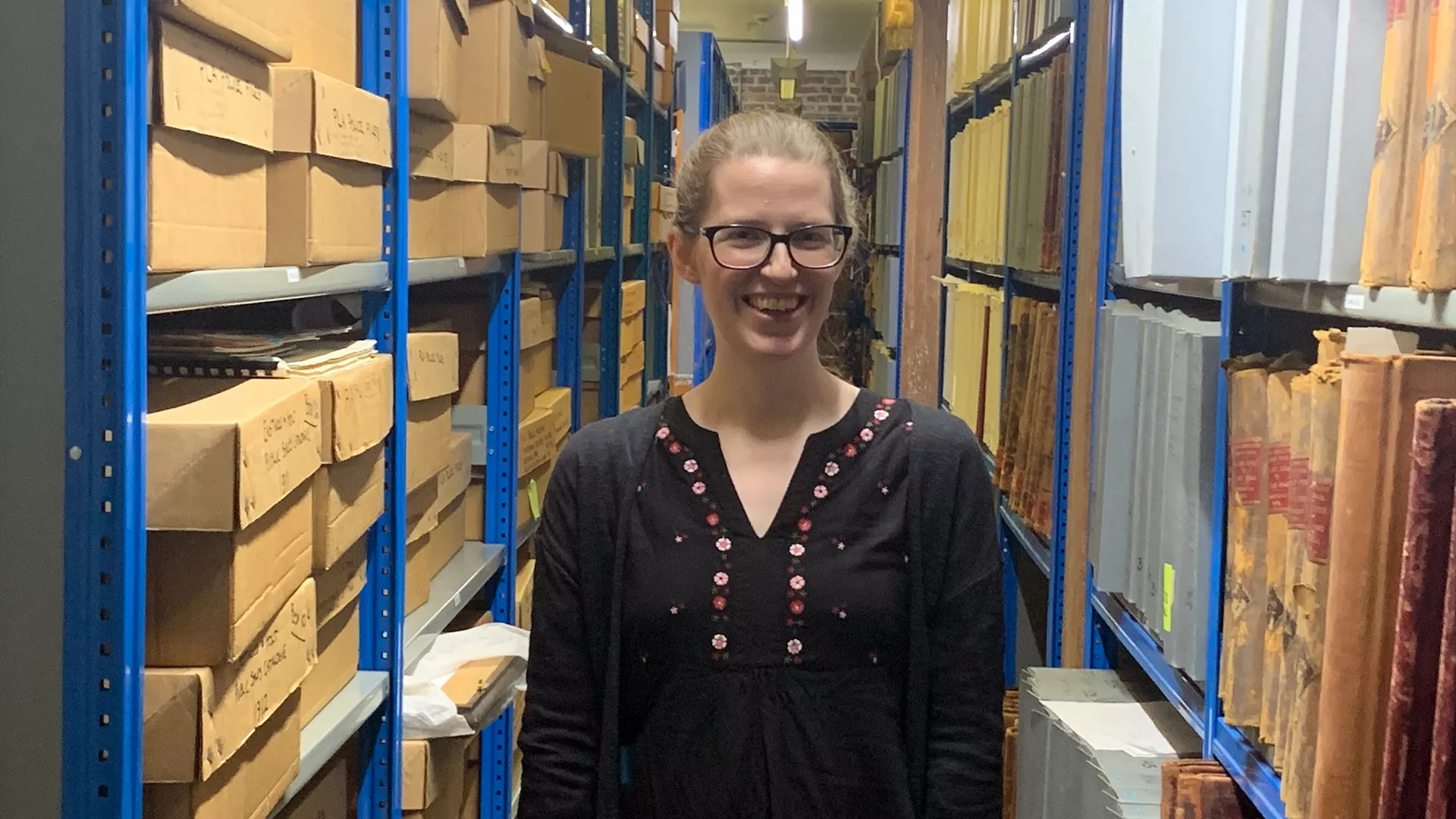
Born and raised in Gloucestershire, Fiona Keates has looked after the Port of London Authority (PLA) archive at the Museum of London Docklands since 2018. One of the largest of its kind in the country, it continues to grow and contains a few surprises.
London calling
“My first encounter with the river was on a school trip to the Tower of London.
“I remember feeling so excited visiting landmarks I’d only ever previously seen on TV."
Historical leanings
“At school, history was always one of my favourite subjects.
“My parents often took me to museums, castles and historic houses.
“It was not a difficult decision to go on and study it at university.
“I absolutely loved being able to look at different time periods in much more detail once I got there.
“I was an undergraduate at Durham, before moving to Liverpool for my Masters in Archiving & Records Management.
“In between, I spent a year gaining work experience including at what was the British Waterways Archive, held at Gloucester Docks.
“Before joining the Museum of London Docklands, I worked for the NSPCC and Royal Society.
“I have really enjoyed gaining experience in a variety of archives.”
Collection highlights
“The archive I now look after is of local, national and international importance.
“The first-ever PLA minute book from 1909, for example, is a highly-significant piece of the port’s history, with the chair of the newly-formed authority setting out the changes that were needed to ensure safety on the river and in the docks, which were among the busiest in the world at that time.
“The majority of the archive dates from the late 1700s, but we do have some earlier property deeds, including one from 1654, when Oliver Cromwell was serving as Lord Protector.
“I always struggle to pick my personal favourite item in the PLA archive.
“If pushed, I’d probably opt for some of the recently-catalogued photographs of PLA employees taken during the First World War.
“They not only capture a poignant moment in history, but unusually we were able to put names to the faces.
“I am biased, but my favourite part of the museum galleries has to be the two display cases dedicated to PLA archive material.
“Currently, they contain signed letters from Ernest Shackleton and Captain Scott, who used the Port of London as a base for their Antarctic expeditions.
“The No. 1 Warehouse gallery is really evocative of how the docks used to look and feel.
“It also features PLA archive material - including a mummified cat and rat…!
“To find out more you will just have to come and explore the museum for yourself.”
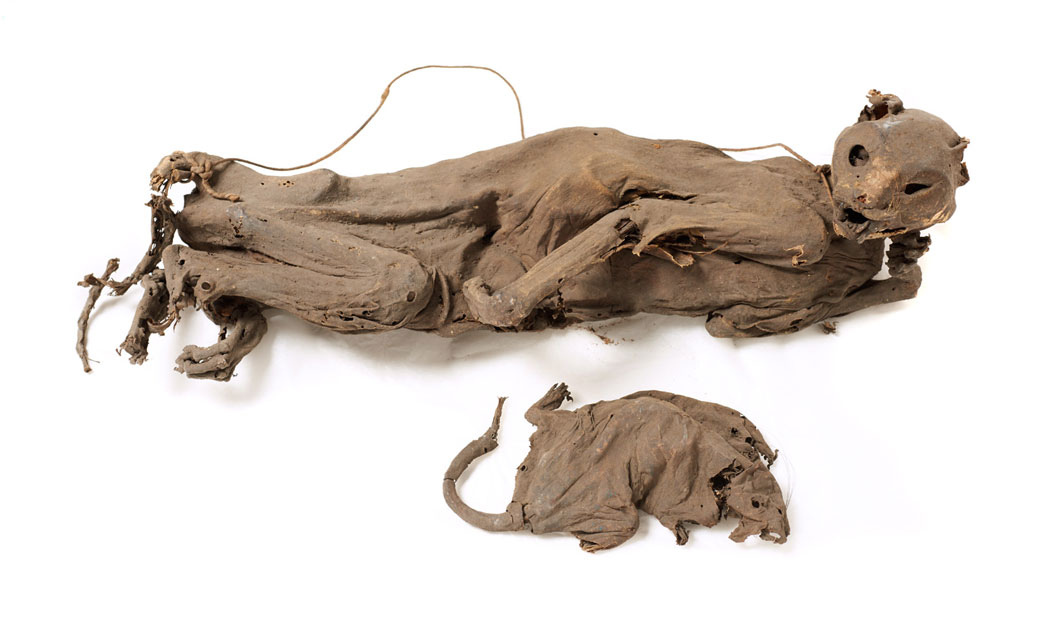
Image above: Mummified cat and rat
Back catalogue
"The archive is also very large - and with the PLA still very much in existence, it continues to grow.
“It’s impossible to say for certain how many items the collection contains.
“We are still in the process of cataloguing it all, which sometimes seems like a never-ending task.
“It’s a long-term exercise that will take years, not months.
“To give you some idea of its scale, we have over two kilometres of shelving, holding all sorts of artefacts, including over 20,000 engineering drawings.
“Quite simply, if an item isn’t catalogued, then we’re unable to find it.
“And if it can’t be found, it can’t be used, either for historical research or display in the museum galleries.”
Day to day
“Archivists often end up doing a multitude of daily tasks, but our primary goal is to make collections accessible and preserve them for future generations.
“I answer enquiries about the PLA collection and facilitate research visits.
“Another of my core duties is cataloguing material onto a specialized database to make it findable.
“On request, I give group tours and talks about the history of the docks and the PLA.
“I particularly enjoy being able to help people compile their family tree with information not found in census records.
“On the flip side, it’s annoying when you have investigated all possible avenues but the information you are seeking has just not survived.”
Protection squad
“Archive material requires special conditions for its continued preservation.
“This includes limiting its exposure to light.
“This is why museum often rotate their displays.
“We take great care to prevent deterioration in the documents.
“The archive is kept in a temperature and humidity-controlled store.
“Even small things help, like removing plastic wallets or metal paperclips.”
Research purposes
“The archive is mostly used for in-depth research.
“Visitors making appointments to view the archive include academics and students, historians, civil engineers, boat restorers and even novelists and fashion designers.
“They come from all corners of the globe.
“Sadly, it was before my time, but a few years back Barbara Windsor visited the archive for an edition of the BBC’s Who Do You Think You Are?
“Everyone is welcome!
“Free appointments are available on Thursdays.
“It’s helpful if people booking a slot to come in can provide in advance an outline of what they are looking to find.
“The museum itself is open to visitors every day.
"The permanent galleries are free too, as is our enquiry service.
“Small parts of the archive are available online.
“It’s important to note that we are unable to accept unsolicited items, so ask people not to turn up or send us anything out of the blue.
“There are lots of checks we have to do before anything can be stored on site.”
A working museum
“The museum is a really great place to work.
“It’s not just the incredible collections.
“All the staff are extremely dedicated and supportive of each other.
“The building we’re in is one of the original dock warehouses.
“We do hear stories about ghosts.
“The floor where the archivists are based is reputedly the most haunted.
“If you are alone in the office as it gets dark, it can be a bit creepy."
Surviving the pandemic
“Like many other museums and visitor attractions, we were impacted by lockdown closures, but we are starting to see more and more visitors coming back.
“With a collection that is largely physical, rather than digital, the pandemic inevitably caused delays in cataloguing and answering enquiries, which was frustrating at times.
“Fortunately, the archive itself suffered no ill effects.
“Our amazing facilities and collections care teams ensured that nothing was at risk during periods the museum was closed.
“The other good news is that we’re pretty much back to normal now and we’re able to host research visits again.”
London: Port City
“In 2022, thousands of visitors came to see London: Port City, a special exhibition which showcased the PLA archive.
“A lot of people were keen to find out more about the history of the docks, or had a family connection to the area, which made it a very personal experience.
“We even had a group of Chelsea Pensioners arrive by boat to tour the exhibition, which is still available online.”
Looking to the future
“There’s a huge amount to look forward to this year at the museum.
“We have a fantastic programme of events lined up to celebrate our 20th anniversary, including a free new display, Indo + Caribbean: The creation of a culture, opening on 19 May and running till November."
Quick fire
- The Thames in just three words? Historic, characterful and essential.
- Best river view? Walking over London Bridge and looking towards Tower Bridge at sunrise or sunset.
- Favourite Thames-side restaurant or pub? The Tattershall Castle in central London, especially on sunny days.
Related content

Location: London/Gravesend Remuneration: £28,971 per annum for a commitment of up to 24 days per...


The PLA’s inaugural Safe Boarding Week is a success

The Port of London Authority’s (PLA) first annual, week-long event ‘Safe Boarding Week’ has been a great success.
The total number of inspections was 265, far exceeding the target of 200, and included gangways, ladders from berths, piers and linkspans, along the 95 miles of tidal Thames in the PLA’s jurisdiction.
Commenting on the success, Bob Baker, the PLA’s chief harbour master, said,
“We’re delighted that our safety initiative, the first of its kind in Europe, has been such a success, achieving its objectives in raising the profile of our commitment to safety and gathering useful information that can help address common issues and deficiencies in safe access. Thanks to all my colleagues, as well as terminals and vessels, for their participation and cooperation with the initiative.”
Sixty-four PLA personnel participated, including senior management, pilots and crew members. The results highlighted the most common shoreside deficiencies were the lack of safety nets that should be fitted under all parts of the gangways, and a lack of gangway attendance. Furthermore, 51 of the 62 pilot ladders that were inspected were found to be compliant. The information that was gathered through the inspections will help develop targeted campaigns in the future.
Related content

Location: London/Gravesend Remuneration: £28,971 per annum for a commitment of up to 24 days per...


Discover
